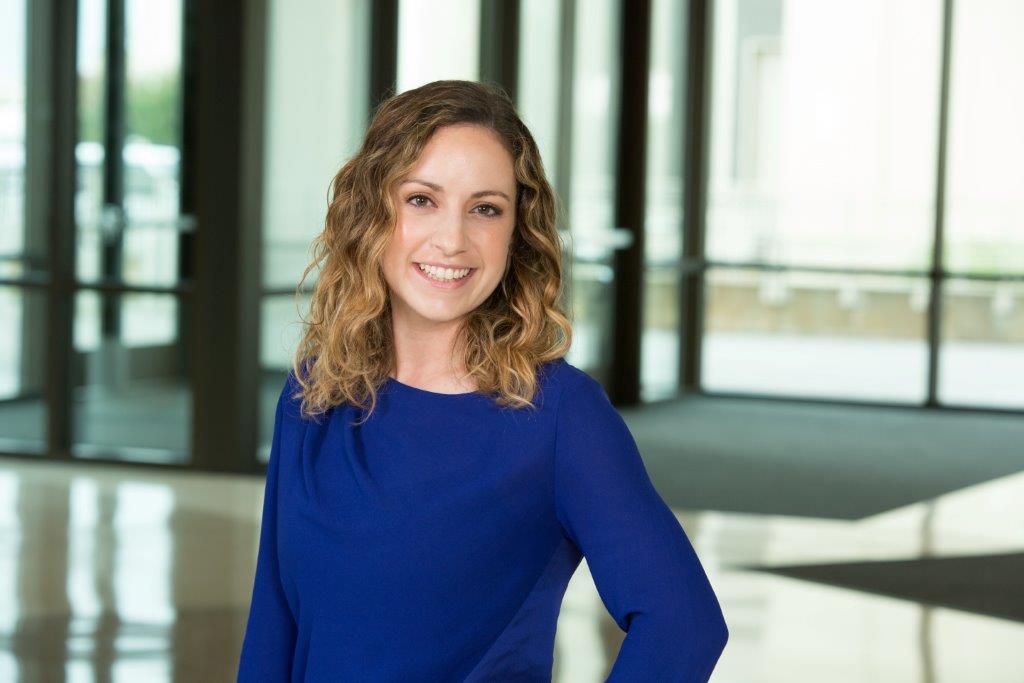 Jillian Alfred currently is the Head of Flight Controls, Actuation, and Utility Systems department at Supernal, an affiliate of Hyundai Motor Group working to develop a new urban air mobility electric vertical take-off and lift vehicle. In this role, she oversees over 30 people executing the technical design, supplier management, and aircraft build of the fly-by-wire aircraft. Prior to this role, Alfred was the Head of the Flight Controls team developing the fly-by-wire architecture and control laws. She joined Supernal as an initial engineering founding member.
Jillian Alfred currently is the Head of Flight Controls, Actuation, and Utility Systems department at Supernal, an affiliate of Hyundai Motor Group working to develop a new urban air mobility electric vertical take-off and lift vehicle. In this role, she oversees over 30 people executing the technical design, supplier management, and aircraft build of the fly-by-wire aircraft. Prior to this role, Alfred was the Head of the Flight Controls team developing the fly-by-wire architecture and control laws. She joined Supernal as an initial engineering founding member.
Prior to that she was at Bell, Textron Inc. starting as a member of the 525 Relentless aircraft (first commercial fly-by-wire helicopter) Control Law team and later holding positions as the Control Law Supervisor and Flight Controls Manager for the 525 team. In her capacity there, Alfred designed many aspects of the control laws and flight controls monitoring structure, which she has 12 patents granted including one patent as sole author. Alfred participated in all aspects of the program life from design, lab test and verification, flight test, and certification.
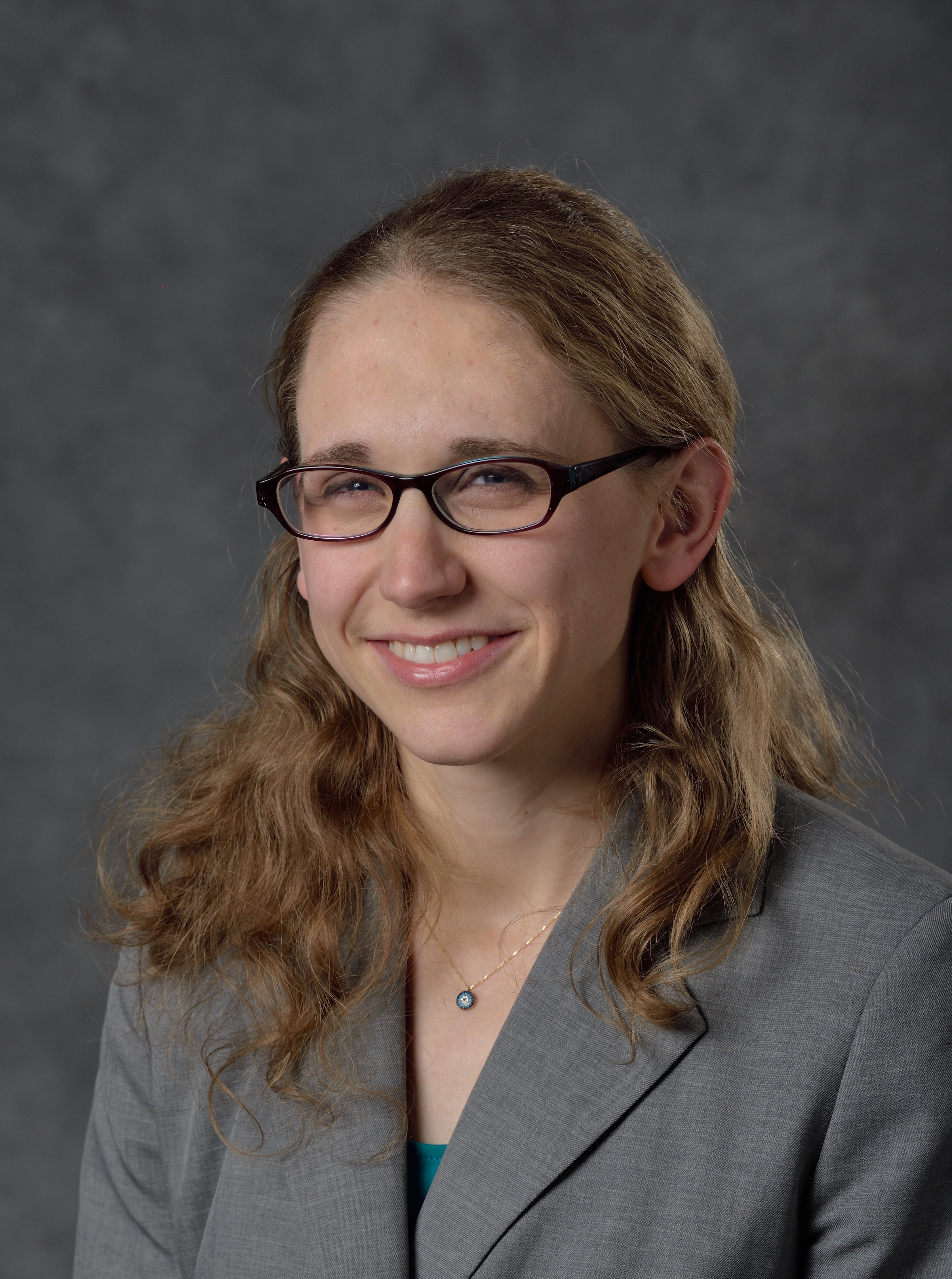 Dr. Kristen Cetin is an Associate Professor in the Department of Civil and Environmental Engineering (CEE) at Michigan State University. She is also the Director of the MSU Industrial Assessment Center. She leads a diverse research group dedicated to advancing smart infrastructures system research and education. Her research group's work focuses on the investigation of the performance of buildings, building systems, and other infrastructure and the development of solutions to improve the energy performance, efficiency, and energy demand contributions of the built environment. This includes projects that combine the fields of building science and building technology with the use of smart grid connected technologies, with the goal of building, operating and maintaining buildings infrastructure, and overall communities that are smarter, more energy efficient and environmentally friendly, and that reduce the peak demands on the electric grid.
Dr. Kristen Cetin is an Associate Professor in the Department of Civil and Environmental Engineering (CEE) at Michigan State University. She is also the Director of the MSU Industrial Assessment Center. She leads a diverse research group dedicated to advancing smart infrastructures system research and education. Her research group's work focuses on the investigation of the performance of buildings, building systems, and other infrastructure and the development of solutions to improve the energy performance, efficiency, and energy demand contributions of the built environment. This includes projects that combine the fields of building science and building technology with the use of smart grid connected technologies, with the goal of building, operating and maintaining buildings infrastructure, and overall communities that are smarter, more energy efficient and environmentally friendly, and that reduce the peak demands on the electric grid.
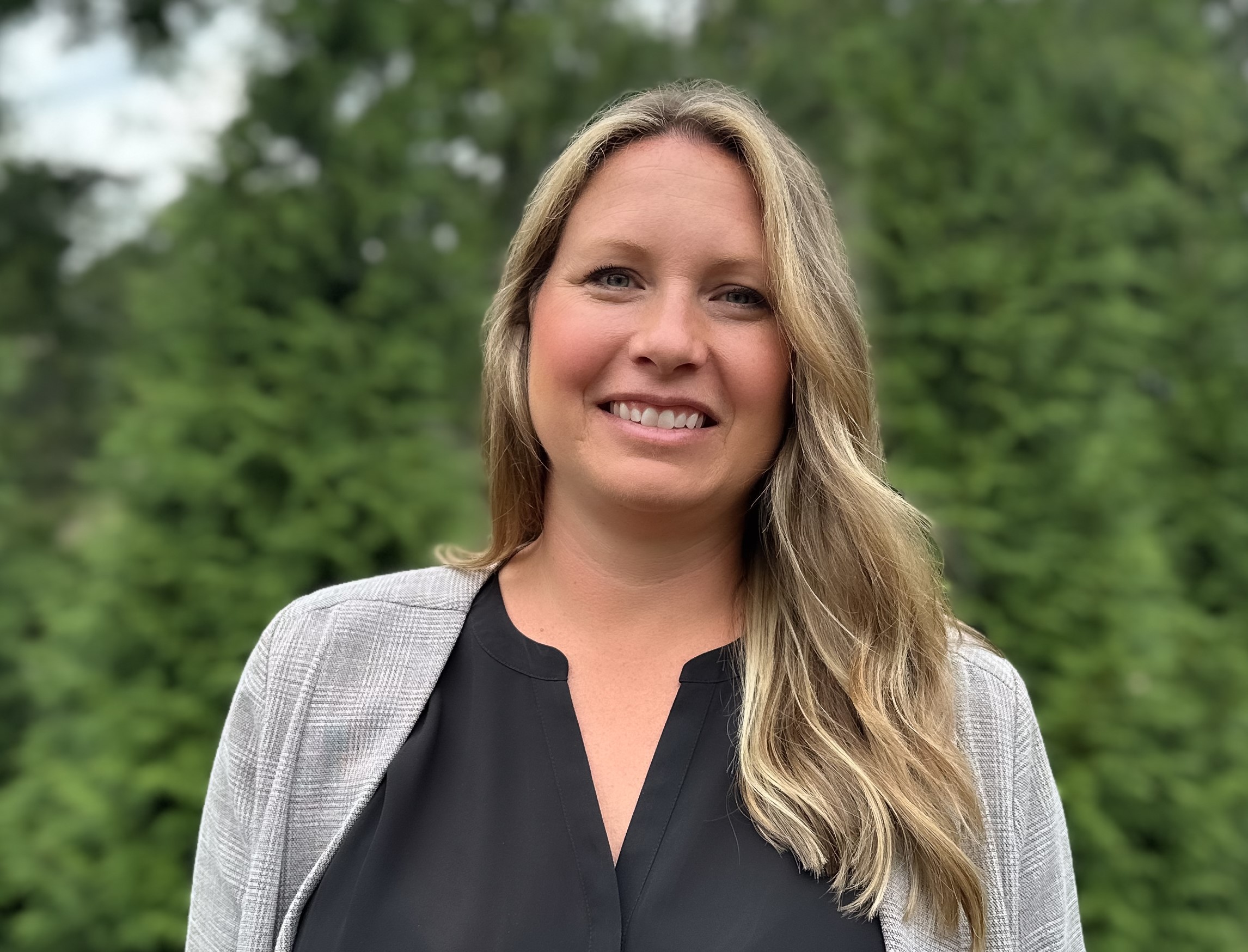 Christine Chatfield is a registered fire protection engineer in the state of Maryland and has also obtained her PMP certification. Chatfield is the Vice President and Global Market Leader for Hospitality at Jensen Hughes, a fire protection and specialty consulting engineering firm. Chatfield has served in various roles within Jensen Hughes since receiving her B.S. in Fire Protection Engineering in 2008 and quickly began her leadership roles within Jensen Hughes by becoming a Senior Engineer managing a group of engineers in 2013 to rising to a Director in the Mid Atlantic shortly thereafter in 2017. In 2023 she was promoted to Global Market Leader for Hospitality and became one of the youngest females in the company to serve as a Global Market Leader. She is accountable for the revenue and margin on hospitality projects on a global scale for the company and works closely with operations SVPs, COO, and business development to grow the market. Since starting in the role in 2023 Jensen Hughes saw a 15% increase in growth in the Hospitality market and her contributions leading up helped Jensen Hughes receive top rankings in the Building Design + Construction hospitality engineering firms in 2022 and 2023.
Christine Chatfield is a registered fire protection engineer in the state of Maryland and has also obtained her PMP certification. Chatfield is the Vice President and Global Market Leader for Hospitality at Jensen Hughes, a fire protection and specialty consulting engineering firm. Chatfield has served in various roles within Jensen Hughes since receiving her B.S. in Fire Protection Engineering in 2008 and quickly began her leadership roles within Jensen Hughes by becoming a Senior Engineer managing a group of engineers in 2013 to rising to a Director in the Mid Atlantic shortly thereafter in 2017. In 2023 she was promoted to Global Market Leader for Hospitality and became one of the youngest females in the company to serve as a Global Market Leader. She is accountable for the revenue and margin on hospitality projects on a global scale for the company and works closely with operations SVPs, COO, and business development to grow the market. Since starting in the role in 2023 Jensen Hughes saw a 15% increase in growth in the Hospitality market and her contributions leading up helped Jensen Hughes receive top rankings in the Building Design + Construction hospitality engineering firms in 2022 and 2023.
 Nicholas Ciccarelli, PE is a co-founder of Neuma LLC which was acquired by Kymanox Corporation in July 2021. Kymanox is a global professional services organization that supports comprehensive drug and medical device development with integrated science, engineering, compliance, and technical project management. Kymanox is backed by WestView Capital Partners, a Boston-based growth equity firm. Since the acquisition, Ciccarelli has steadily progressed within the parent organization to become Chief Technology Officer and serves on the executive leadership team. His success in the integration of the legacy design team from Neuma has enabled Kymanox to pursue new opportunities in M&A and to expand into new service areas including medical device testing and low-volume manufacturing. Ciccarelli is now leading Kymanox’s efforts in integrating a European medical device development company with legacy design, development, and commercialization teams. He is particularly focused on optimizing the collaboration between cross-functional teams to accelerate speed to market for new medical technologies.
Nicholas Ciccarelli, PE is a co-founder of Neuma LLC which was acquired by Kymanox Corporation in July 2021. Kymanox is a global professional services organization that supports comprehensive drug and medical device development with integrated science, engineering, compliance, and technical project management. Kymanox is backed by WestView Capital Partners, a Boston-based growth equity firm. Since the acquisition, Ciccarelli has steadily progressed within the parent organization to become Chief Technology Officer and serves on the executive leadership team. His success in the integration of the legacy design team from Neuma has enabled Kymanox to pursue new opportunities in M&A and to expand into new service areas including medical device testing and low-volume manufacturing. Ciccarelli is now leading Kymanox’s efforts in integrating a European medical device development company with legacy design, development, and commercialization teams. He is particularly focused on optimizing the collaboration between cross-functional teams to accelerate speed to market for new medical technologies.
Ciccarelli has spent his career working to bring cutting-edge medical technologies to patients and providers. He encourages his engineering teams to consider manufacturing, assembly, and testing early in the development cycle because inadequate device design can lead to costly changes later on. He has led and worked within cross-functional engineering teams that span the US, Europe, and China. His engineering experience has been focused on interventional surgery, drug delivery, and home healthcare; all fields which he is passionate about and that he sees as critical to the future of medicine.
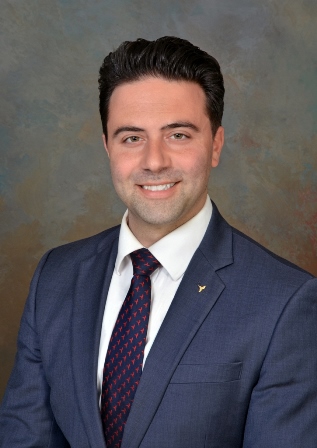 Angelo Collins is the Executive Director of the Vertical Flight Society, leading the world’s only international non-profit organization dedicated to the advancement of vertical takeoff and landing (VTOL) aircraft and technology. A majority of his career was dedicated to supporting R&D efforts at DARPA, where he served as a Subject Matter Expert (SME) on various aerospace programs. Collins also served as the Science and Technology (S&T) Portfolio Manager and S&T Affordability Lead in the F-35 Joint Program Office, primarily responsible for oversight of S&T projects, including the F135-PW-600 engine and Rolls-Royce LiftSystem for the short takeoff and vertical landing (STOVL) jet fighter. In support of the Office of Naval Research, Collins helped make sea-based aviation a National Navy Responsibility and also served as the Flight Test Lead and overall engineering lead of the Autonomous Aerial Cargo Utility System (AACUS) Program. Collins also served as a program manager for Skyworks Aeronautics on a part-time basis, leading a team of international engineers, analysts, and lawyers in the development of the Hawk 5 Gyroplane. Collins has a B.S. in Aerospace Engineering from the University of Maryland, College Park and an M.S. in Engineering Administration from Virginia Tech. He is the author/co-author of six technical papers and several articles in Vertiflite Magazine. He was a student of and co-author with then-UMD Prof. Gordon Leishman, winning a best paper award in 2011. He is a native of the Boston, Massachusetts area, but has lived and worked in Arlington, Virginia since 2009. He’s married and has 3 children.
Angelo Collins is the Executive Director of the Vertical Flight Society, leading the world’s only international non-profit organization dedicated to the advancement of vertical takeoff and landing (VTOL) aircraft and technology. A majority of his career was dedicated to supporting R&D efforts at DARPA, where he served as a Subject Matter Expert (SME) on various aerospace programs. Collins also served as the Science and Technology (S&T) Portfolio Manager and S&T Affordability Lead in the F-35 Joint Program Office, primarily responsible for oversight of S&T projects, including the F135-PW-600 engine and Rolls-Royce LiftSystem for the short takeoff and vertical landing (STOVL) jet fighter. In support of the Office of Naval Research, Collins helped make sea-based aviation a National Navy Responsibility and also served as the Flight Test Lead and overall engineering lead of the Autonomous Aerial Cargo Utility System (AACUS) Program. Collins also served as a program manager for Skyworks Aeronautics on a part-time basis, leading a team of international engineers, analysts, and lawyers in the development of the Hawk 5 Gyroplane. Collins has a B.S. in Aerospace Engineering from the University of Maryland, College Park and an M.S. in Engineering Administration from Virginia Tech. He is the author/co-author of six technical papers and several articles in Vertiflite Magazine. He was a student of and co-author with then-UMD Prof. Gordon Leishman, winning a best paper award in 2011. He is a native of the Boston, Massachusetts area, but has lived and worked in Arlington, Virginia since 2009. He’s married and has 3 children.
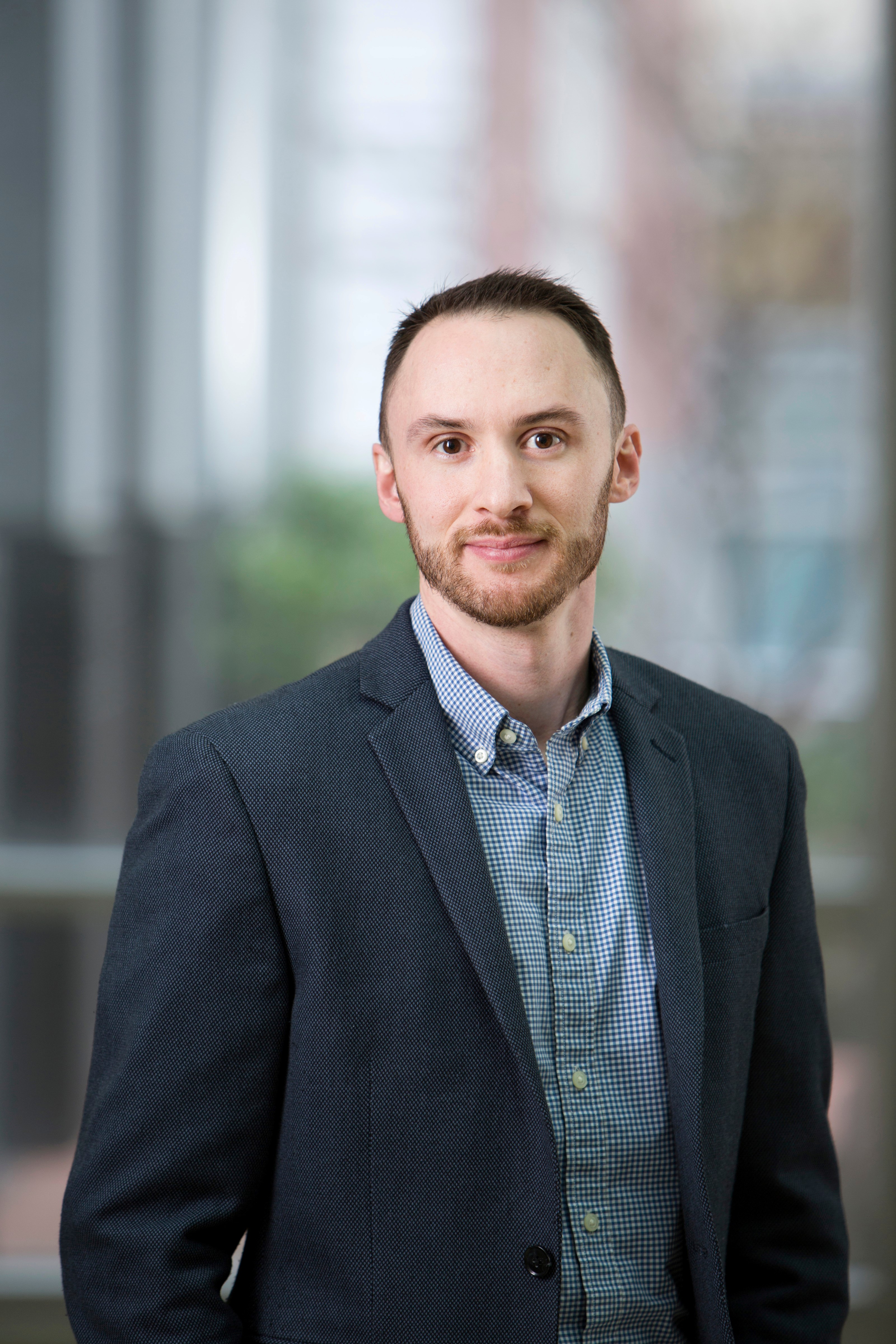 Dr. Pete DeMuth is a Founding Scientist at Elicio Therapeutics Inc. (NASDAQ: ELTX) and currently serves as Chief Scientific Officer, leading the development of technology platforms for cancer immuno-therapeutics and infectious disease vaccines from early research to clinical development. Since the founding of the company, over his more than ten year tenure at Elicio, DeMuth has led the development of the company’s AMP technology platform. These efforts have led to the invention and development of multiple product candidates, including ELI-002, an investigational cancer immunotherapy currently in Phase 2 clinical trials.
Dr. Pete DeMuth is a Founding Scientist at Elicio Therapeutics Inc. (NASDAQ: ELTX) and currently serves as Chief Scientific Officer, leading the development of technology platforms for cancer immuno-therapeutics and infectious disease vaccines from early research to clinical development. Since the founding of the company, over his more than ten year tenure at Elicio, DeMuth has led the development of the company’s AMP technology platform. These efforts have led to the invention and development of multiple product candidates, including ELI-002, an investigational cancer immunotherapy currently in Phase 2 clinical trials.
To his current role, DeMuth brings over fifteen years of experience in oncology, immunology, materials science, and technology innovation. Prior to joining Elicio, DeMuth completed his Ph.D. training at the Massachusetts Institute of Technology (MIT) where he oversaw efforts to develop novel technologies for immunotherapy and vaccine development at the Koch Institute for Integrative Cancer Research. This work was recognized by the National Institute of Health (NIH) and the American Chemical Society, and became the scientific basis for Vaxess Technologies, now a clinical-stage biotechnology company.
In 2015, DeMuth received the Quadrant Award for Innovative Polymer Research. He has been a Research Fellow with the NIH, Novartis, and the Howard Hughes Medical Institute. While at the University of Maryland, he was awarded the University Medal for outstanding character, service, and academic accomplishment including his development of advanced technologies for oncology therapeutics.
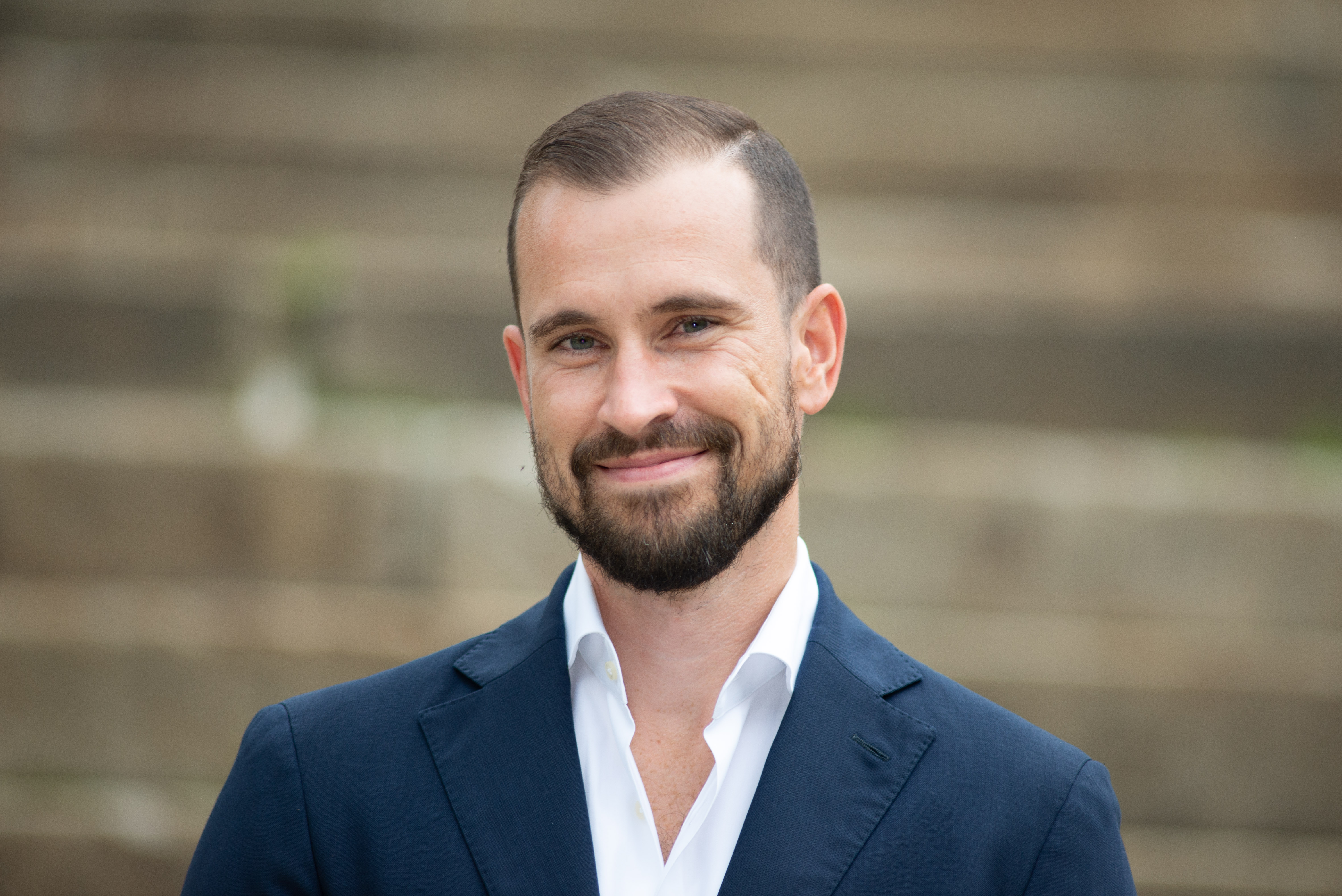 James Doggett has held engineering, analysis, and leadership roles across multiple government and private sector organizations. Currently, he serves as an Operations Research Analyst in the Space and Intelligence Division of the Department of Defense's Cost Assessment and Program Evaluation (CAPE) organization. Originally chartered in the 1960s as the Office of Systems Analysis, CAPE exists to provide civilian oversight of the formation and execution of the Department of Defense's nearly trillion-dollar yearly budget. In this role, Doggett applies Operations Research (OR) and qualitative analysis tools to large and messy datasets in order to provide strategic decision support to Department of Defense senior leaders.
James Doggett has held engineering, analysis, and leadership roles across multiple government and private sector organizations. Currently, he serves as an Operations Research Analyst in the Space and Intelligence Division of the Department of Defense's Cost Assessment and Program Evaluation (CAPE) organization. Originally chartered in the 1960s as the Office of Systems Analysis, CAPE exists to provide civilian oversight of the formation and execution of the Department of Defense's nearly trillion-dollar yearly budget. In this role, Doggett applies Operations Research (OR) and qualitative analysis tools to large and messy datasets in order to provide strategic decision support to Department of Defense senior leaders.
Prior to joining CAPE, Doggett spent six years in various program management and leadership roles at HawkEye 360, a startup company providing the world's first commercial solution for radio frequency (RF) collection and geolocation from space. Doggett helped to scale the company from nine employees with zero satellites to over 150 employees with 18 on-orbit satellites, in addition to standing up the company's program management and execution functions.
Before HawkEye 360, Doggett served in Aerospace and Systems Engineering roles at the US Naval Research Laboratory and the Department of Defense Principal Space Advisor Staff. Doggett holds a B.S. in Aerospace Engineering from the University of Maryland, College Park, and an M.Eng. in Systems Engineering from the University of Virginia. He lives in Washington, DC with his much smarter and more talented wife, who he met while studying abroad as a student at UMD.
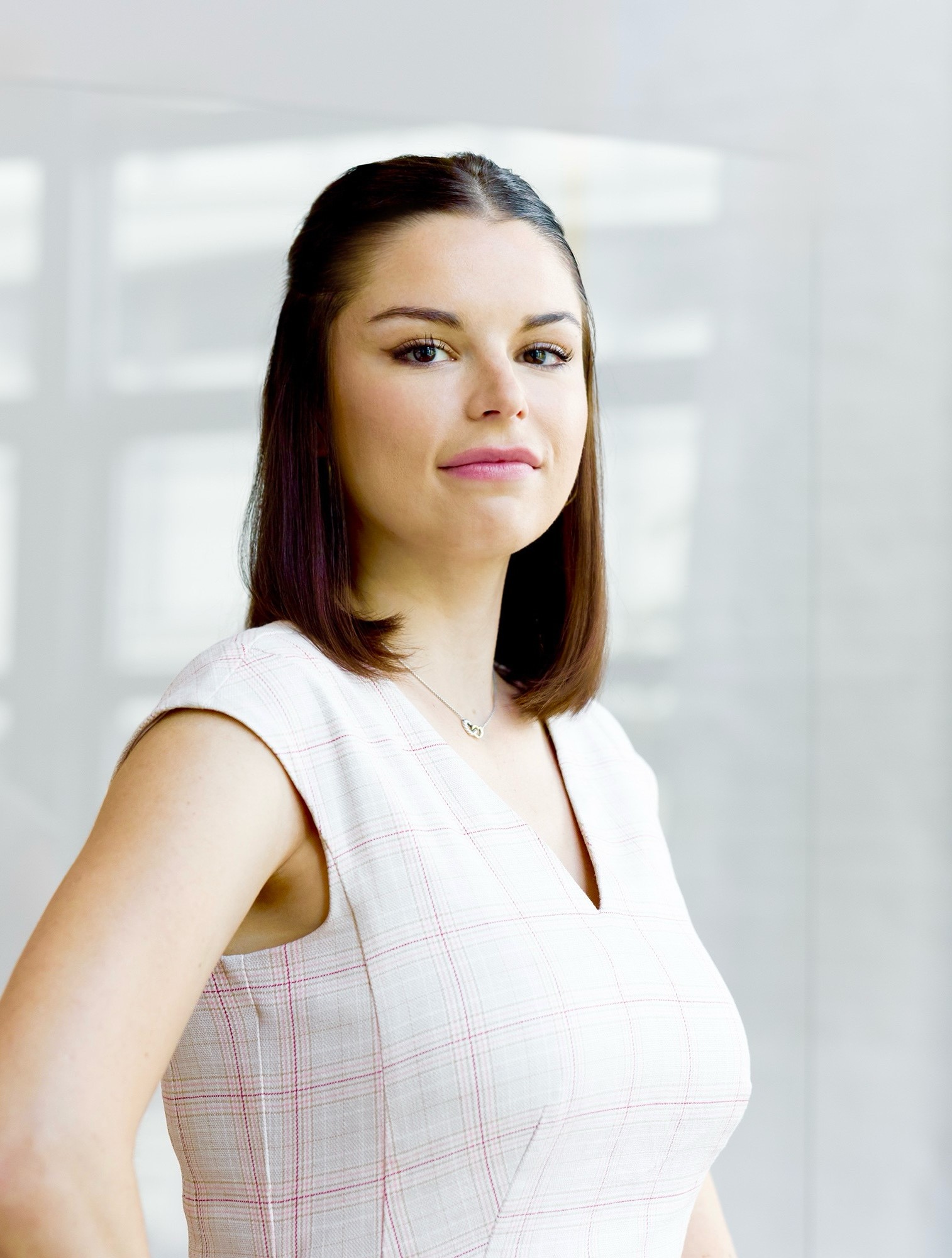 Lucia Fernandez is a leading scientist and central figure in the rising second generation of Cell and Gene Therapy pioneers. As Head of Process Development and Manufacturing at VintaBio, Fernandez and her team are creating novel technologies and solutions aimed at simplifying gene therapy development and production. Driven to make one-dose gene therapies accessible to all, Fernandez’s innovations have increased yield and efficiency, while greatly reduced the cost of development and manufacture, and alleviated regulatory burden for gene therapy developers.
Lucia Fernandez is a leading scientist and central figure in the rising second generation of Cell and Gene Therapy pioneers. As Head of Process Development and Manufacturing at VintaBio, Fernandez and her team are creating novel technologies and solutions aimed at simplifying gene therapy development and production. Driven to make one-dose gene therapies accessible to all, Fernandez’s innovations have increased yield and efficiency, while greatly reduced the cost of development and manufacture, and alleviated regulatory burden for gene therapy developers.
Fernandez obtained her B.S. in Bioengineering from the University of Maryland, College Park in 2018 and worked at Merck in vaccine and biologics development upon graduation. After contributing to two key drug approvals at Merck, Fernandez was drawn to the Cell and Gene Therapy industry by the incredibly promising clinical results provided by therapies such as Luxturna and Zolgensma. Prior to joining VintaBio Fernandez served as the Head of Viral Vector Technology Transfer at CBM, where she aided in translating over five gene therapies from development to the clinic. Fernandez also completed her Ph.D. in Biochemical Engineering at Villanova University while pursuing her full-time career, further amplifying her expertise in gene delivery.
Fernandez was selected as one of the top emerging scientists in the Advanced Therapy space in 2023 by Phacilitate. Now on her second Cell and Gene Therapy start-up, Fernandez believes that solutions to society's biggest problems lay at the intersection between groundbreaking science and entrepreneurship.
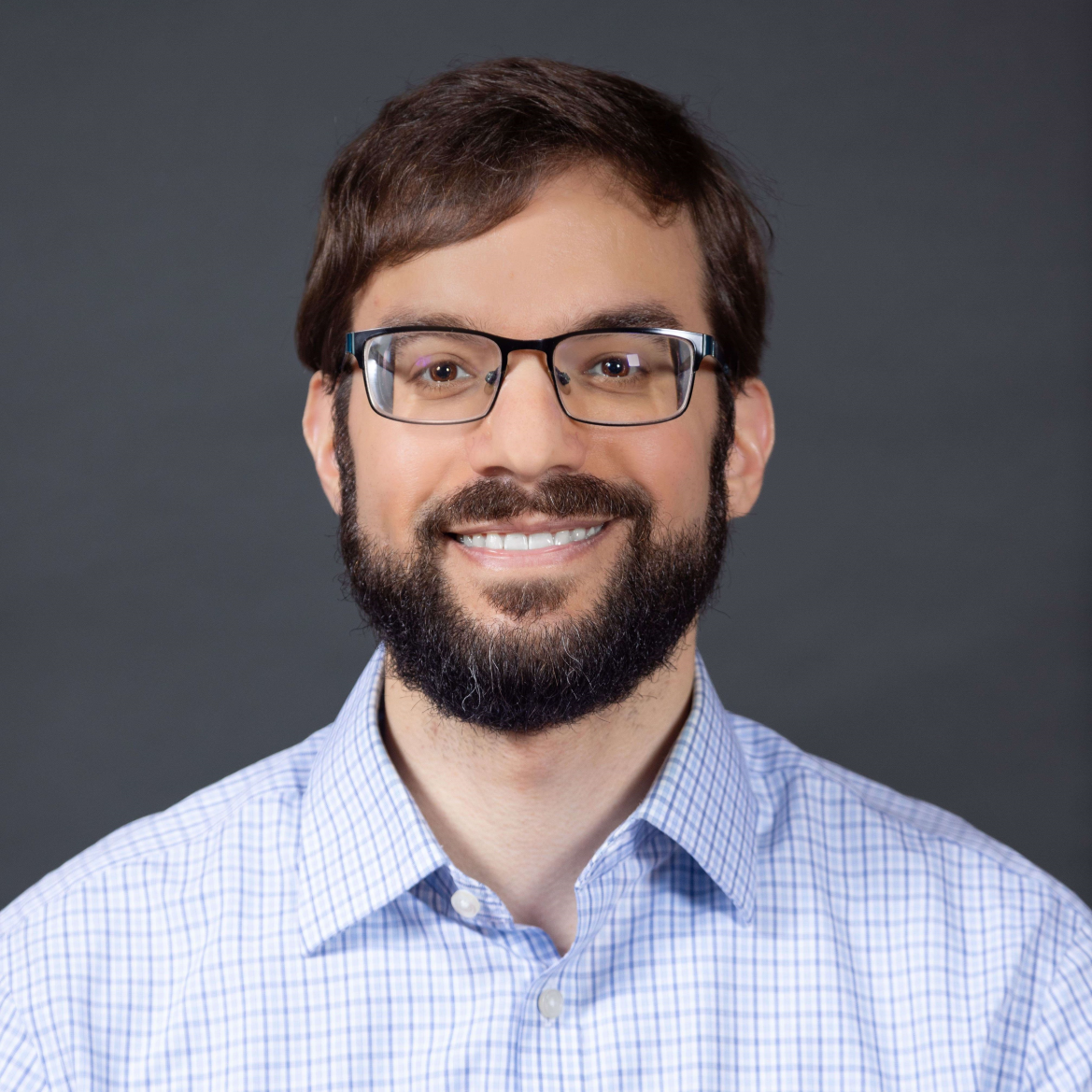 After receiving his Ph.D. degree from the University of Maryland, College Park in 2013, Domenic Forte joined the University of Connecticut as an Assistant Professor. He is currently with the Electrical and Computer Engineering (ECE) Department at the University of Florida (UF) where he holds the titles of Professor and Steven A Yatauro Faculty Fellow. In 2022, he was named the Associate Director of UF’s Florida Institute for National Security (FINS).
After receiving his Ph.D. degree from the University of Maryland, College Park in 2013, Domenic Forte joined the University of Connecticut as an Assistant Professor. He is currently with the Electrical and Computer Engineering (ECE) Department at the University of Florida (UF) where he holds the titles of Professor and Steven A Yatauro Faculty Fellow. In 2022, he was named the Associate Director of UF’s Florida Institute for National Security (FINS).
Forte’s research centers on hardware security and assurance, where he specializes in microelectronics supply chain security, security-aware computer-aided design (CAD) tools, hardware security primitives, and hardware reverse/anti-reverse engineering. Forte has co-authored 1 book (editing 2 other books), 14 book chapters, more than 80 peer-reviewed journal articles, and over 150 peer-reviewed conference/workshop papers. He has been an organizer and/or TPC member of top security conferences, including USENIX Security, NDSS, and HOST, and top hardware conferences, such as DAC, ICCAD, ITC, and ISTFA. He is currently an Associate Editor of 3 journals.
Forte is a recipient of the prestigious Presidential Early Career Award for Scientists and Engineers (PECASE), the NSF Faculty Early Career Development Program (CAREER) Award, and the Army Research Office (ARO) Young Investigator Award. His research has been recognized with more than 10 best paper awards and nominations. Other honorifics include the HWCOE Doctoral Dissertation Advisor/Mentoring Award, Pramod P. Khargonekar Junior Faculty Award for Excellence, Provost’s Excellence Award for Assistant Professors, Excellence in Teaching Award from the UF ECE GSO, and George Corcoran Outstanding Teaching Award from UMD.
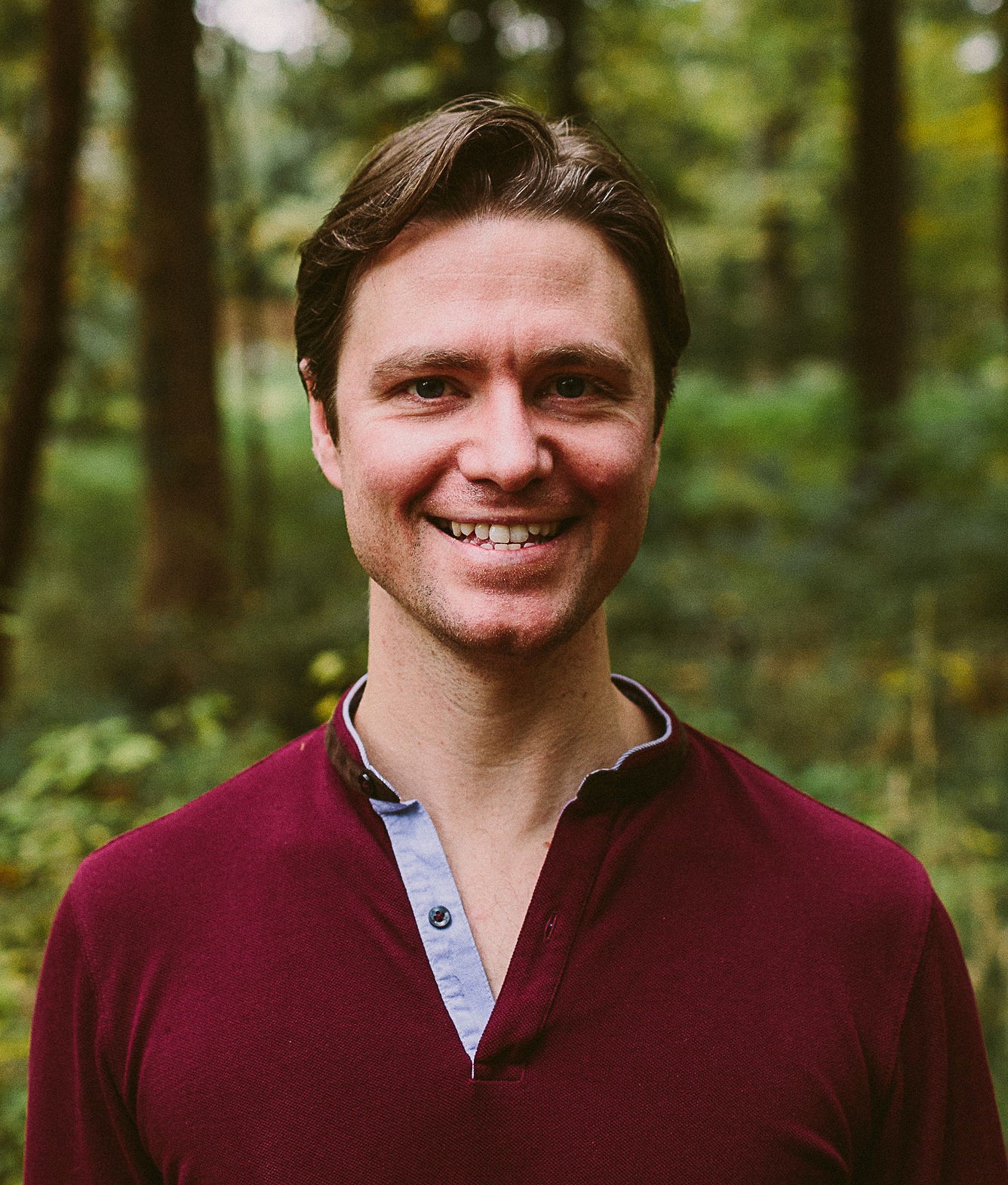 Dr. Brendan Hanrahan is a senior materials engineer, renowned for his expertise in ferroelectrics and energy applications. He earned his B.S. from Clemson University in 2006. At the University of Maryland, College Park he obtained an M.S. (’09) and a Ph.D. in 2013 in Materials Science and Engineering, focusing his doctoral research on advancing microscale power generation technologies.
Dr. Brendan Hanrahan is a senior materials engineer, renowned for his expertise in ferroelectrics and energy applications. He earned his B.S. from Clemson University in 2006. At the University of Maryland, College Park he obtained an M.S. (’09) and a Ph.D. in 2013 in Materials Science and Engineering, focusing his doctoral research on advancing microscale power generation technologies.
Since joining the DEVCOM U.S. Army Research Laboratory in 2009, Hanrahan has been instrumental in energy technologies, particularly in wireless power and energy storage. His team's notable achievement includes developing the highest operating temperature random access memory (RAM), which is currently in the process of commercialization. He received the prestigious Civilian Meritorious Service Medal in 2021 for his contributions to diversity, equity, and inclusion at the Army lab. In 2022, he was honored with the U.S. Army Research Laboratory Mentoring Award. In 2020, he was named ARL Scientist of the Quarter for his wireless power program. His commitment to excellence in his field is further evidenced by over 50 peer-reviewed publications, more than 30 presentations, and 4 patents/applications. One of his notable patents in elastocaloric cooling technology has laid the foundation for Barrow Green LLC, a start-up revolutionizing air conditioning and refrigeration systems.
He is the founder and former chairman of Cupid Charities, which has raised over $28 million for the Children’s Tumor Foundation through the Cupid’s Undie Run. His leadership in the Mid-Atlantic Micro/Nano Alliance and volunteer work with IEEE-UFFC Ferrocom further highlight his dedication to advancing science and community engagement.
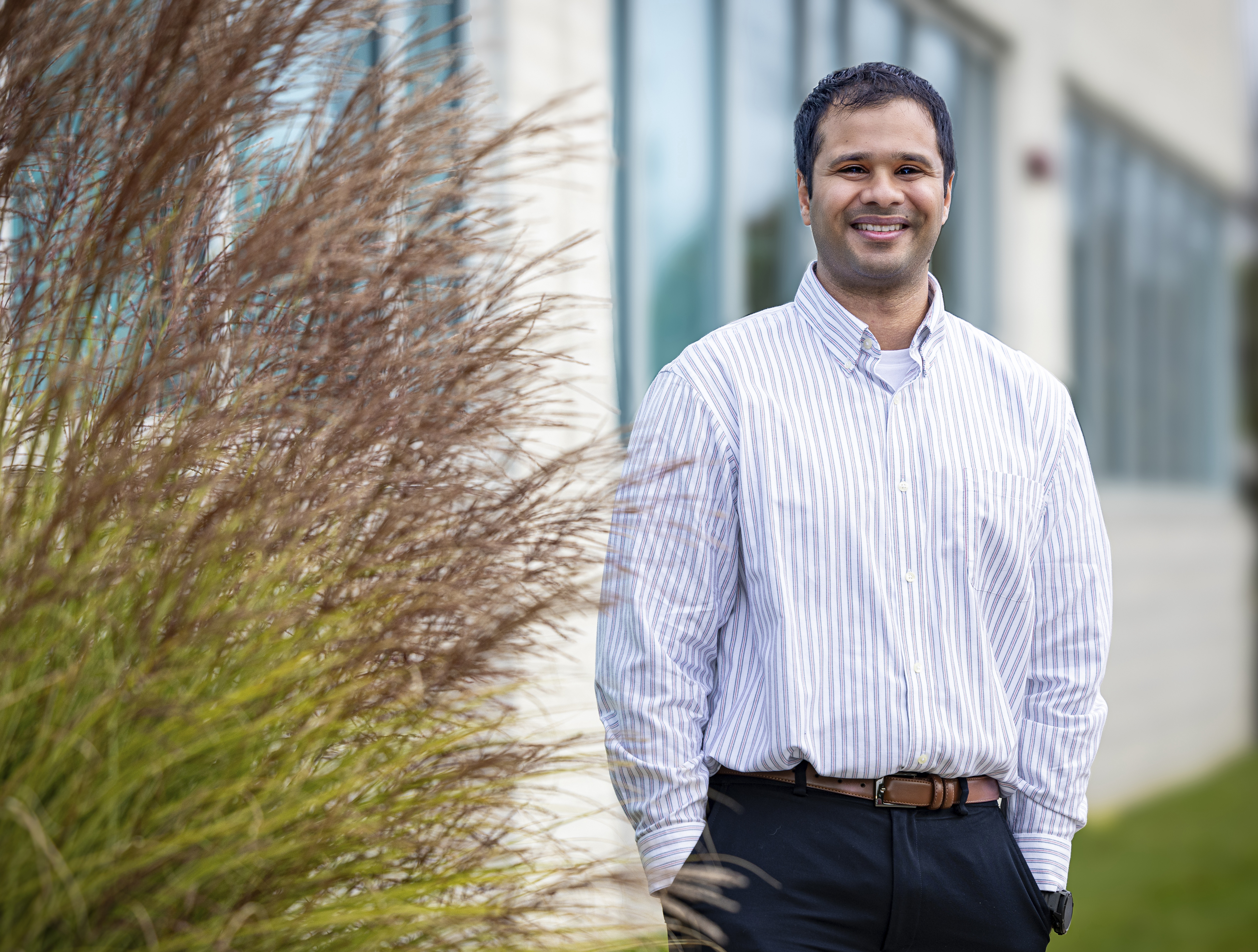 Rubbel Kumar is the Air-Vehicle Design and Technologies Program Manager at the Johns Hopkins Applied Physics Laboratory (APL), the US’s largest University Affiliated Research Center.
Rubbel Kumar is the Air-Vehicle Design and Technologies Program Manager at the Johns Hopkins Applied Physics Laboratory (APL), the US’s largest University Affiliated Research Center.
Beginning his career as an aerodynamicist, Kumar conducted aerodynamic and aerothermal analyses, trajectory optimization, and testing for hypersonic systems. Then, he supervised APL’s 10-person Multi-disciplinary Modeling, Analysis and Optimization Section where he conceptualized and led development of a multi-disciplinary optimization and system design framework.
After holding several technical and project leadership roles, Kumar became a program manager. He leads a diverse team of over 40 technical staff, including 8 project managers and principal investigators in advancing state-of-the-art hypersonic systems through S&T and technology demonstrations.
A senior member of the American Institute of Aeronautics and Astronautics (AIAA), Kumar has served as a member of the Applied Aerodynamics Technical Committee. AIAA and Aviation Week named him one of “Tomorrow’s Engineering Leaders: The 20 Twenties.”
Dedicated to developing future engineers and leaders, Kumar co-leads an APL leadership development program, volunteers with APL’s STEM Office, and has mentored several engineers and interns through APL’s mentoring and internship programs. He has championed initiatives through multiple diversity, equity, and inclusion teams. Loyola University and Leadership Howard County selected Kumar for their Leadership Essentials and Advanced Leadership Development Programs. The Society of Asian Scientists and Engineers recognized him with their Promising Professional Award.
Kumar holds a B.S. (’14) and an M.S. (’19) in Aerospace Engineering from the University of Maryland, College Park.
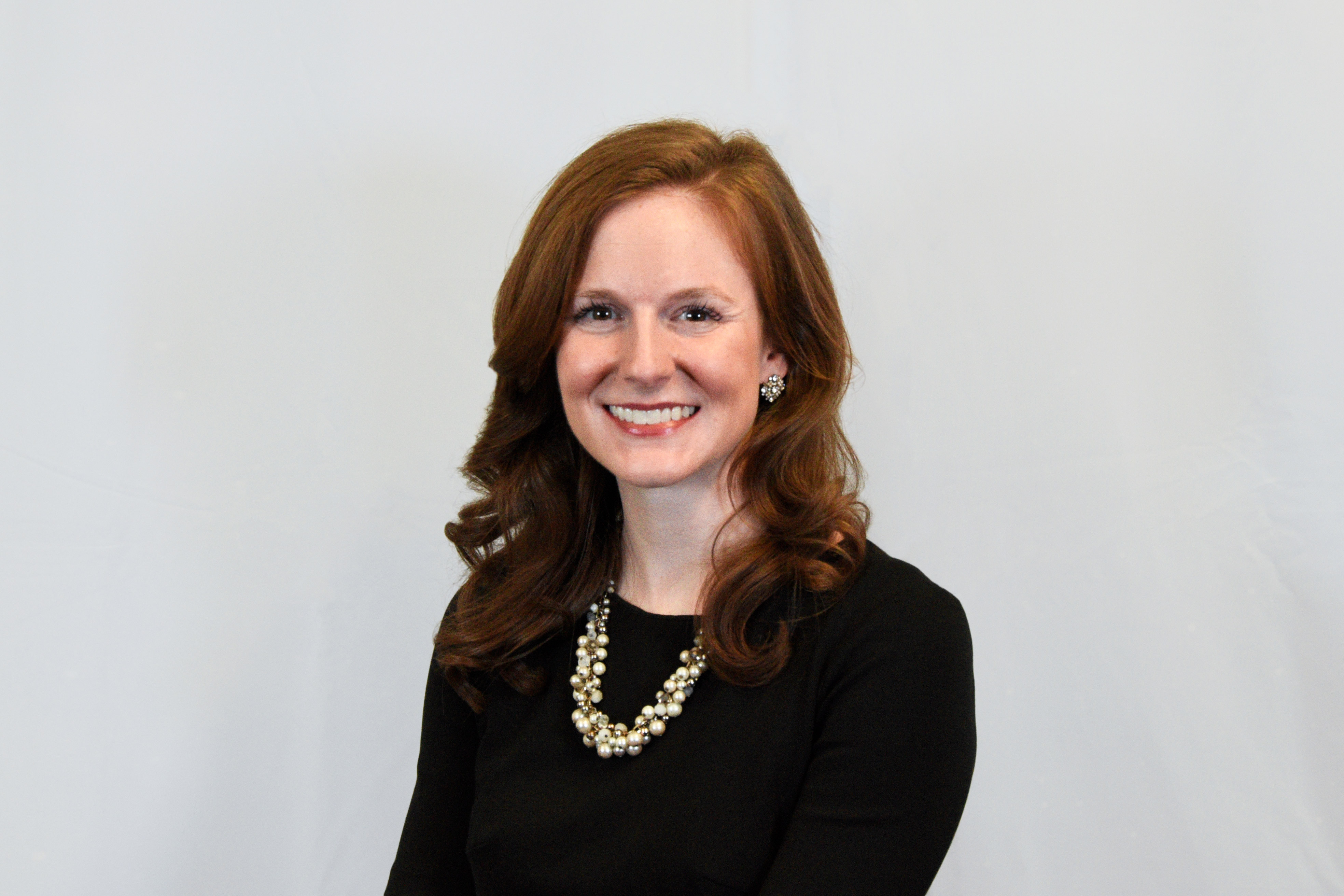 Hilary Lane joined the Nuclear Energy Institute (NEI) in 2017 and has nearly 15 years of experience working in commercial and defense nuclear, holding positions of increasing responsibility. She is currently the Director of Fuel and Radiation Safety, where her team works on a diverse array of regulatory, technical, and policy matters on behalf of the commercial nuclear industry. Since 2020, she has been a member of the Executive Committee to the National Organization of Test, Research, and Training Reactors (TRTR), representing her alma mater, the University of Maryland, and several other university research reactors across the United States.
Hilary Lane joined the Nuclear Energy Institute (NEI) in 2017 and has nearly 15 years of experience working in commercial and defense nuclear, holding positions of increasing responsibility. She is currently the Director of Fuel and Radiation Safety, where her team works on a diverse array of regulatory, technical, and policy matters on behalf of the commercial nuclear industry. Since 2020, she has been a member of the Executive Committee to the National Organization of Test, Research, and Training Reactors (TRTR), representing her alma mater, the University of Maryland, and several other university research reactors across the United States.
Prior to joining NEI, Lane worked in the U.S. Nuclear Regulatory Commission (NRC) as an International Safeguards Analyst. Lane began her career at the National Nuclear Security Administration (NNSA) in Washington, DC, in both the Office of Defense Nuclear Nonproliferation and Office of Defense Programs. During that time, Lane served on assignment to the British Embassy in Washington, and to Lawrence Livermore National Laboratory in Livermore, California.
Lane graduated with honors from the University of Maryland, College Park with a B.S. in Materials Science and Engineering. She also holds an Associate’s Certificate in Project Management from George Washington University.
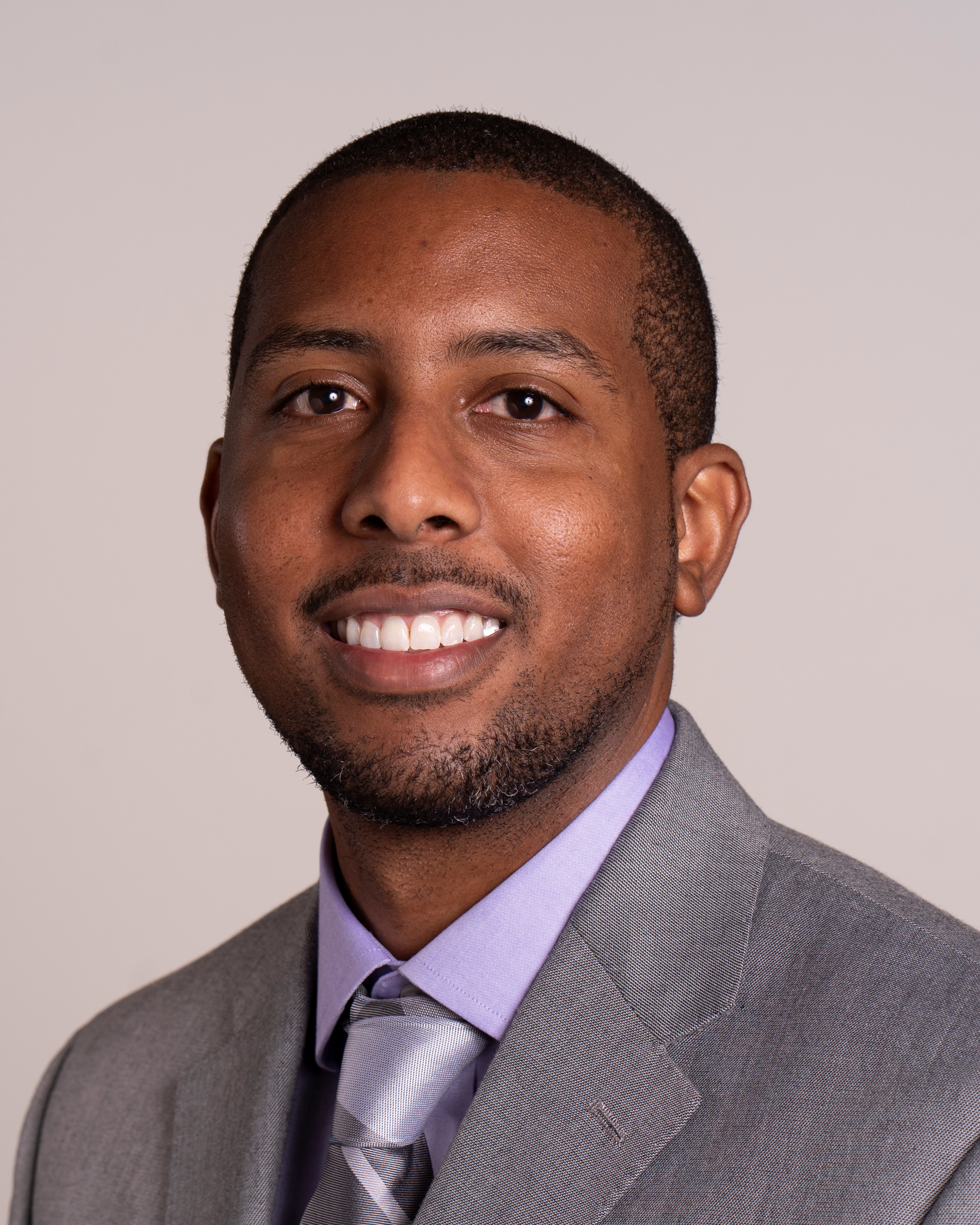 James Lankford currently serves as a staff-level aerodynamicist for the Flight Physics Division of Aurora Flight Sciences. During his tenure with Aurora Flight Sciences, Lankford has had the opportunity to work on a number of projects related to fixed-wing and rotary-wing aircraft. His work duties on those projects included conducting high-fidelity computational fluid dynamics (CFD) analysis to determine vehicle-level aerodynamic performance. Lankford also performed mid-fidelity analysis of vehicle rotor system aeromechanics to assess aerodynamic and structural load impacts. His current work is focused on the design and analysis for select DARPA X-Plane projects.
James Lankford currently serves as a staff-level aerodynamicist for the Flight Physics Division of Aurora Flight Sciences. During his tenure with Aurora Flight Sciences, Lankford has had the opportunity to work on a number of projects related to fixed-wing and rotary-wing aircraft. His work duties on those projects included conducting high-fidelity computational fluid dynamics (CFD) analysis to determine vehicle-level aerodynamic performance. Lankford also performed mid-fidelity analysis of vehicle rotor system aeromechanics to assess aerodynamic and structural load impacts. His current work is focused on the design and analysis for select DARPA X-Plane projects.
In addition to his primary work role, Lankford joined the Boeing Black Employees Association (BBEA) in 2020 after Aurora Flight Sciences became an official BBEA chapter and currently serves as the President of BBEA - Aurora.
Lankford received his B.S. in Aerospace and Ocean Engineering from Virginia Polytechnic and State University (Virginia Tech) in 2011. From there, Lankford proceeded to attend graduate school at the University of Maryland, College Park as a part of the Alfred Gessow Rotorcraft Center of Excellence. While at University of Maryland, College Park Lankford received his M.S. (2014) and Ph.D. (2018) both in Aerospace Engineering with a concentration in Rotorcraft.
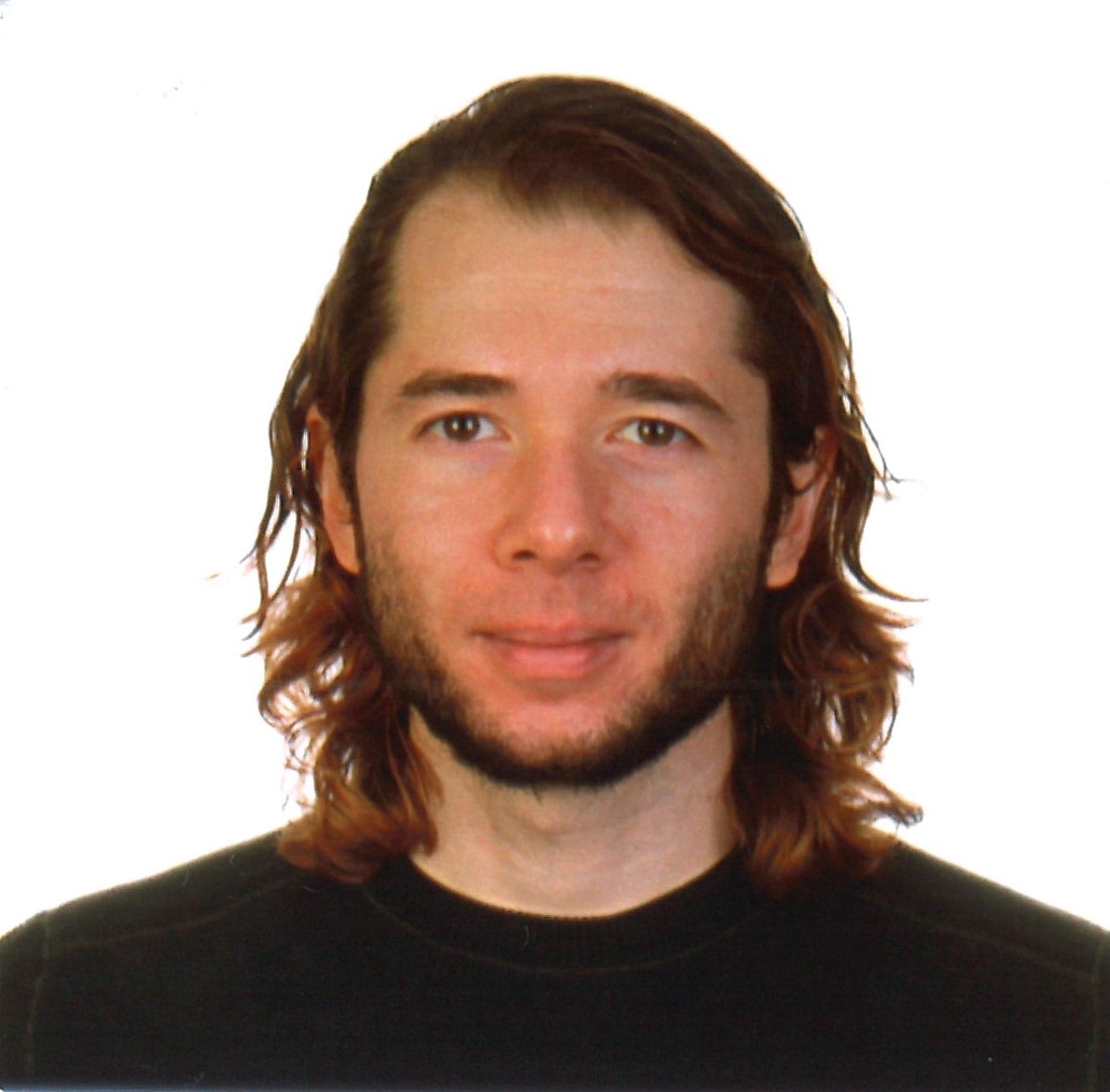 Dr. Isaac Leventon is an alumnus of the University of Maryland, College Park where he completed his B.S., M.S., and Ph.D. with the Department of Fire Protection Engineering. In 2018, he reimagined and has since led, the Engineered Fire Safe Products Project at the National Institute of Standards and Technology (NIST). In this role, Leventon has significantly enhanced NIST Fire Research capabilities by establishing a material flammability database that maintains and advances the tools needed for quantitative prediction of material flammability (e.g., ignition, steady burning, and fire growth). Leventon has been instrumental in developing state-of-the-art experimental measurements and automated analysis tools for material property determination (i.e., for fire model calibration); accurate, realistic, and efficient material property sets; and comprehensive datasets for advanced fire model validation.
Dr. Isaac Leventon is an alumnus of the University of Maryland, College Park where he completed his B.S., M.S., and Ph.D. with the Department of Fire Protection Engineering. In 2018, he reimagined and has since led, the Engineered Fire Safe Products Project at the National Institute of Standards and Technology (NIST). In this role, Leventon has significantly enhanced NIST Fire Research capabilities by establishing a material flammability database that maintains and advances the tools needed for quantitative prediction of material flammability (e.g., ignition, steady burning, and fire growth). Leventon has been instrumental in developing state-of-the-art experimental measurements and automated analysis tools for material property determination (i.e., for fire model calibration); accurate, realistic, and efficient material property sets; and comprehensive datasets for advanced fire model validation.
Leventon is distinguished by his passion for technical collaboration as demonstrated by his involvement in international round-robin testing; leadership of the Condensed Phase Subgroup of the Measurement and Computation of Fire Phenomena Working Group (MaCFP, an international collaboration between experimentalists and modelers designed to enable systematic progress in fire modeling); and collaborations with external Universities and Federal Agencies on diverse research including electrical fires in Nuclear Power Plants, quantification of material burning behavior at multiple scales, and wildfire modeling. Leventon has prepared dozens of technical publications including peer-reviewed journal articles and conference papers (9 as lead author) and non-refereed reports (including 6 NIST Technical Notes); he is also the co-organizer of multiple widely used digital repositories of fire experiments used for computational fire model validation.
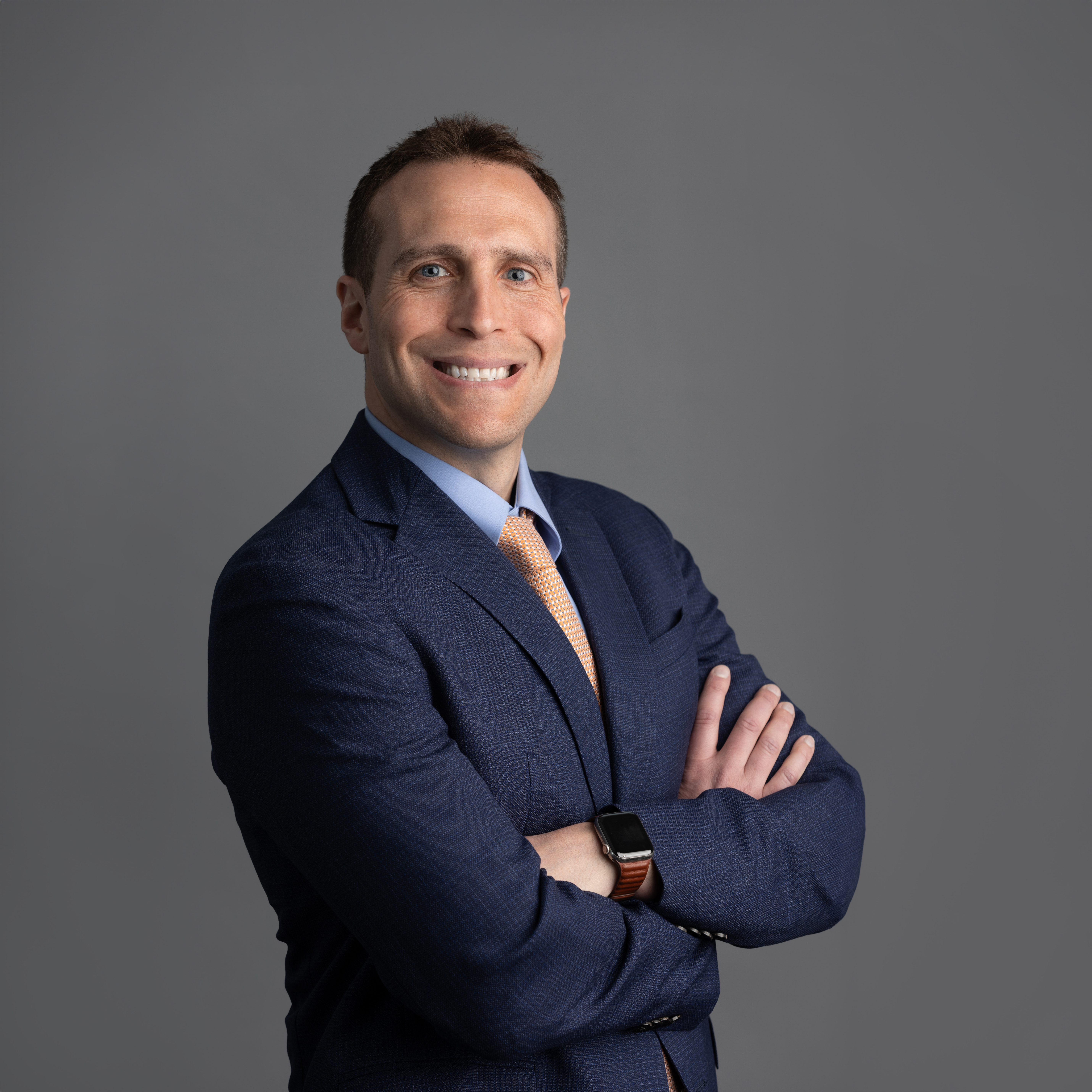 Adam Levine is the President of Capitol Fire Sprinkler, a fire sprinkler installation and service company in New York City that was founded in 1952.
Adam Levine is the President of Capitol Fire Sprinkler, a fire sprinkler installation and service company in New York City that was founded in 1952.
Levine received a B.S. in Fire Protection Engineering from the University of Maryland, College Park in 2006. Levine is a Professional Engineer in Fire Protection and is licensed to perform fire suppression work in New York City, New Jersey, Nassau County, and Suffolk County. He is a Principal Member of the NFPA-14 Technical Committee (Standpipes), as well as a long tenured member of the NYC Building Code / Existing Building Code Fire Protection Technical Committee. He is also a member of the NYC FDNY Fire Code Advisory Committee and the NYC Plumbing and Fire Suppression Piping Licensing Board. Additionally, Levine is a voting member of the American Fire Sprinkler Association Technical Advisory Committee. Levine is also involved with various industry associations, including as the Vice President of the New York Fire Sprinkler Contractors Association and the Treasurer of the NYC Metro Chapter of the Society of Fire Protection Engineers. Additionally, Levine is the proud recipient of the AFSA 2023 Young Professional of the Year Award.
Levine received an M.B.A. from Baruch College in 2011. He continues his business development with his involvement with the Young Presidents' Organization (YPO), where he is an active board member of his local NYC Chapter. He is also involved with Vistage, a business coaching group, and the NY Alliance, a business growth group.
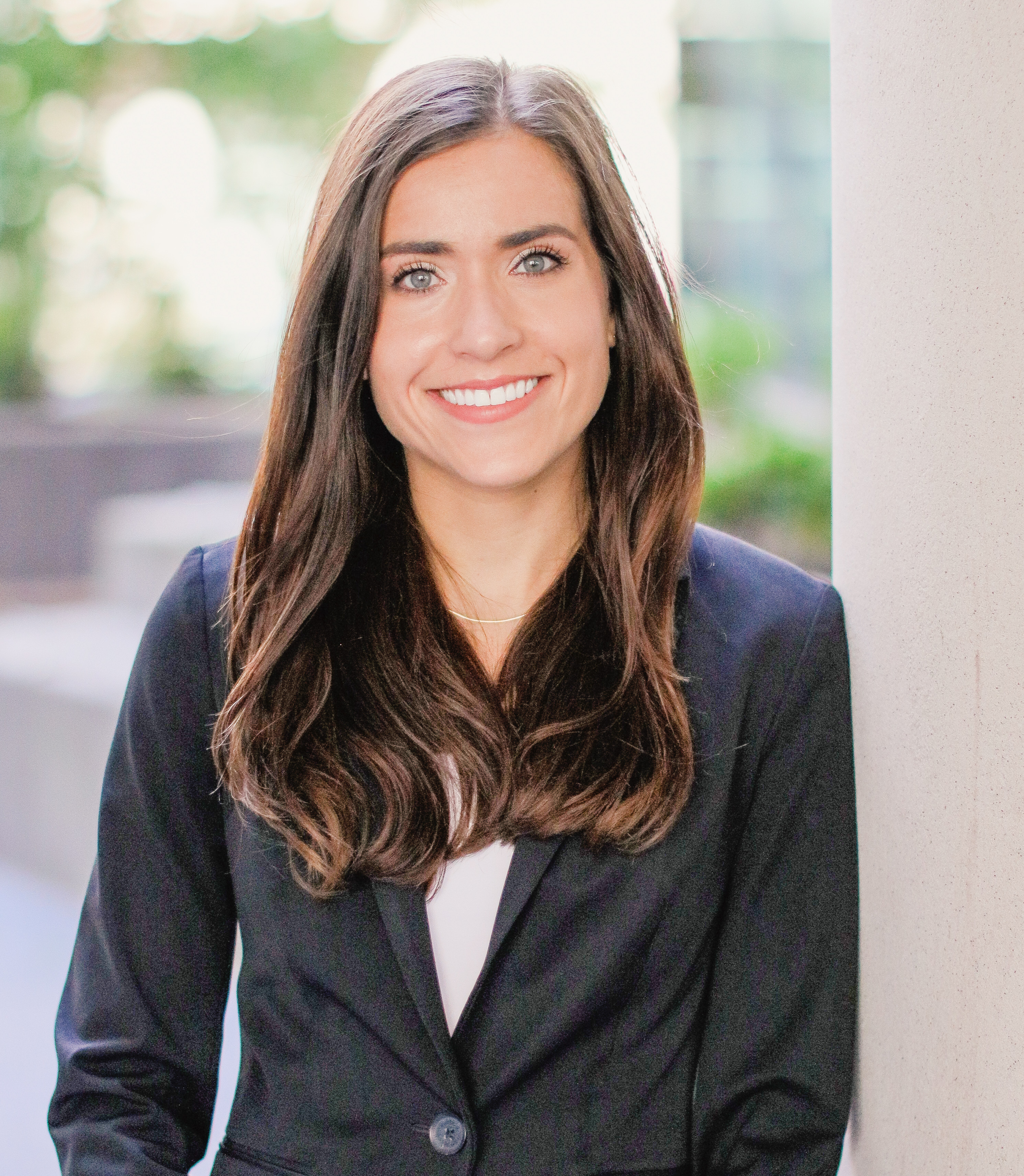 Currently, Rachel Lilienfeld is the Lead Fire Protection Engineer for Amazon Web Services (AWS). She is responsible for designing strategic safety systems and influences organizational growth for the entire AWS data center operations. As a fire protection engineer, she protects the environment, property, and most importantly, people, from the dangers of fire and explosions. Additionally, Lilienfeld was selected to be on a global technical committee for the National Fire Protection Association (NFPA).
Currently, Rachel Lilienfeld is the Lead Fire Protection Engineer for Amazon Web Services (AWS). She is responsible for designing strategic safety systems and influences organizational growth for the entire AWS data center operations. As a fire protection engineer, she protects the environment, property, and most importantly, people, from the dangers of fire and explosions. Additionally, Lilienfeld was selected to be on a global technical committee for the National Fire Protection Association (NFPA).
Before joining the technology community with AWS in 2022, Lilienfeld worked for Bechtel, the #1 ranked U.S. contractor in the defense, environmental management, and energy industries. During her six years at Bechtel, Lilienfeld developed and improved fire protection systems for a first-of-a-kind radioactive waste treatment plant for the Department of Energy, a chemical weapon destruction facility for the Department of Defense, a carbon-free power plant designed to provide clean energy to millions of homes, along with other multi-million to multi-billion-dollar infrastructure projects. In one of her most noteworthy roles, Lilienfeld was the Lead Technical Engineering Representative for all fire protection systems in a state-of-the-art Uranium Processing Facility, with a combined value of more than 230 million dollars. This facility has a key role in strengthening our country’s defense and reducing the global threat from weapons of mass destruction.
Lilienfeld has a M.S. in Engineering from Purdue University, and a B.S. in Fire Protection Engineering from University of Maryland, College Park.
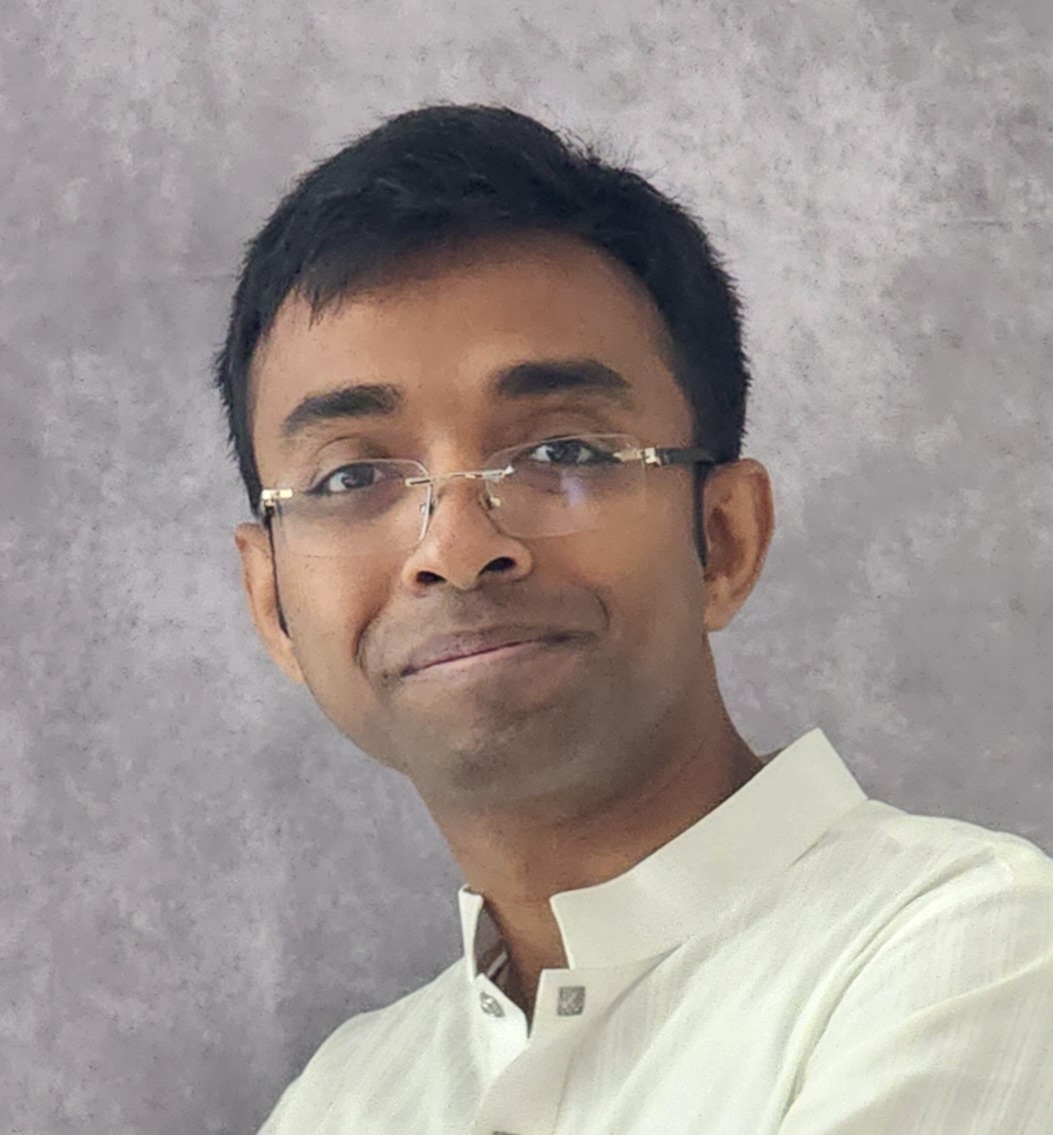 Upal Mahbub, Ph.D., Senior Member IEEE, is a Staff Engineer at the Multimedia R&D Lab at Qualcomm, San Diego, CA. He received his Ph.D. (2018) and an M.S. (2017) in Electrical Engineering from the University of Maryland, College Park, and another M.S. (2011) in Electrical and Electronic Engineering from BUET, Dhaka, Bangladesh. His doctoral research was on multi-modal active user authentication for smartphones using computer vision and machine learning techniques. Previously, Mahbub was an Assistant Professor at the Dept. of Electrical and Electronic Engineering, BUET, Dhaka, Bangladesh. He received the best paper awards at IEEE UEMCON 2016 and ICCIT 2011, best poster award at BTAS 2016, and a distinguished graduate fellowship from the A. James Clark School of Engineering at UMD.
Upal Mahbub, Ph.D., Senior Member IEEE, is a Staff Engineer at the Multimedia R&D Lab at Qualcomm, San Diego, CA. He received his Ph.D. (2018) and an M.S. (2017) in Electrical Engineering from the University of Maryland, College Park, and another M.S. (2011) in Electrical and Electronic Engineering from BUET, Dhaka, Bangladesh. His doctoral research was on multi-modal active user authentication for smartphones using computer vision and machine learning techniques. Previously, Mahbub was an Assistant Professor at the Dept. of Electrical and Electronic Engineering, BUET, Dhaka, Bangladesh. He received the best paper awards at IEEE UEMCON 2016 and ICCIT 2011, best poster award at BTAS 2016, and a distinguished graduate fellowship from the A. James Clark School of Engineering at UMD.
Mahbub has been pursuing impactful research for 15+ years in the fields of computer vision, machine learning, and speech enhancement. His current research focus is on developing hardware-efficient computer vision solutions for extended reality (XR) and mobile apps. Mahbub has published 30+ articles in international conferences and journals, published an edited book titled “Contactless Human Activity Analysis” from Springer, 2021, served as guest editor of PRL special issue AHAAGR 2021, associate editor of IJCVSP, and in the program committees of ICIEV (2012 - Present), IVPR (track chair 2020, program chair 2021 - Present), and ABC (2019 - Present). Since 2022, Mahbub has served as the chair of IEEE Computer Society San Diego Chapter. He received the 2024 Outstanding Engineering Service award from the San Diego County Engineering Council for his contributions in reviving the chapter.
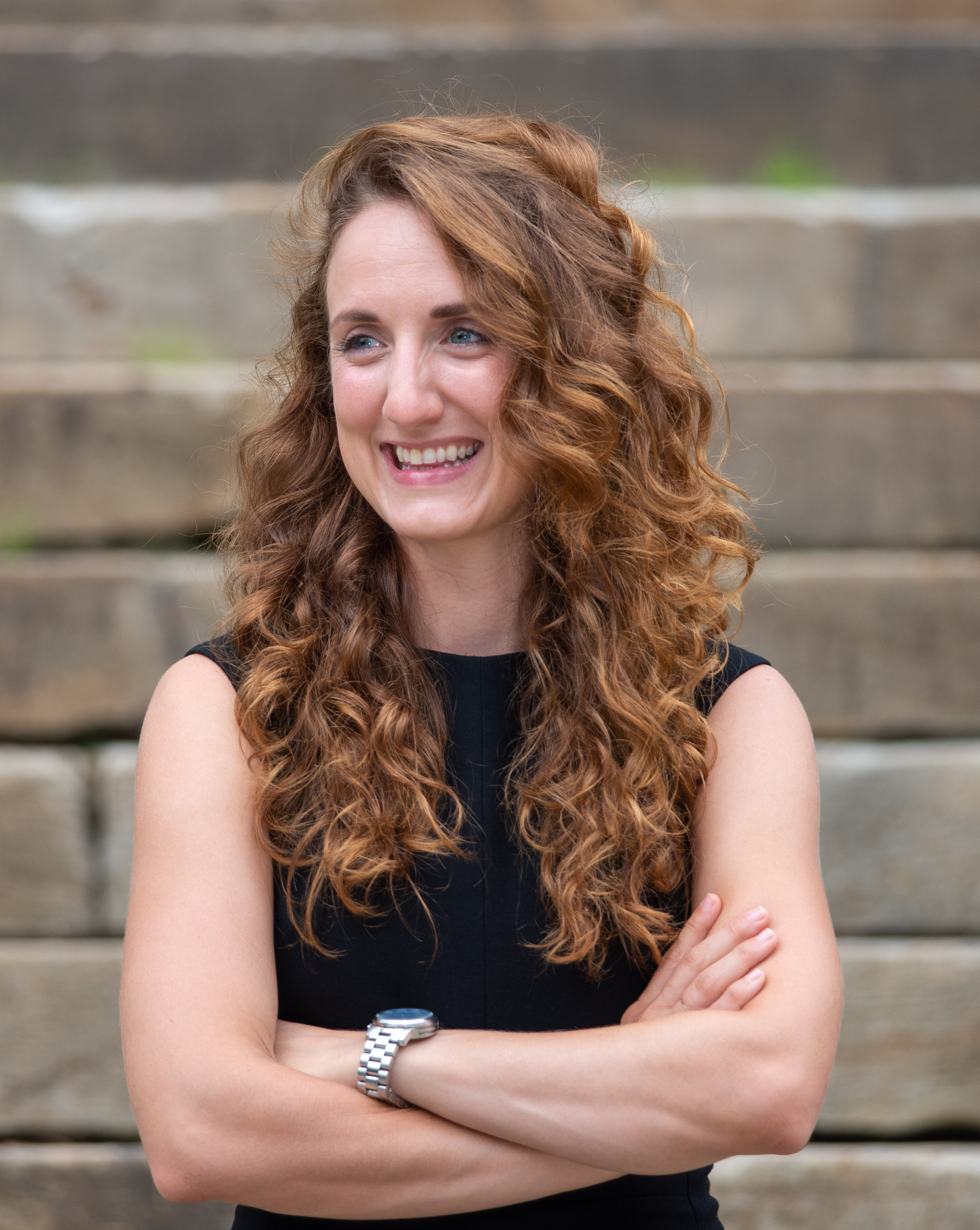 Caitlin Marsh is the Vice President of Product for SpiderOak, the leader in zero-trust cybersecurity solutions for next-generation space systems, where she oversees SpiderOak's product strategy, aligning customer mission requirements, product development, and market strategy.
Caitlin Marsh is the Vice President of Product for SpiderOak, the leader in zero-trust cybersecurity solutions for next-generation space systems, where she oversees SpiderOak's product strategy, aligning customer mission requirements, product development, and market strategy.
Prior to joining SpiderOak, Marsh led the Strategic Intelligence team at Ball Aerospace where she was responsible for driving Ball’s cross-business unit corporate strategy as well as overseeing competitive intelligence and strategic partnerships. Before joining Ball, Marsh worked as a Program Manager at In-Q-Tel, managing strategic investment in startup companies on behalf of the IC, and held various positions in industry providing direct support to several intelligence agencies.
Marsh is actively engaged as an advisor and mentor in the aerospace community. She is the Chairman of the Advisory Council for The Command Purpose Foundation, a values-based community that supports veteran women through their transition from military to civilian life.
Marsh earned her B.S. in Aerospace Engineering from the University of Maryland, College Park, and her M.S. in Systems Engineering from The George Washington University.
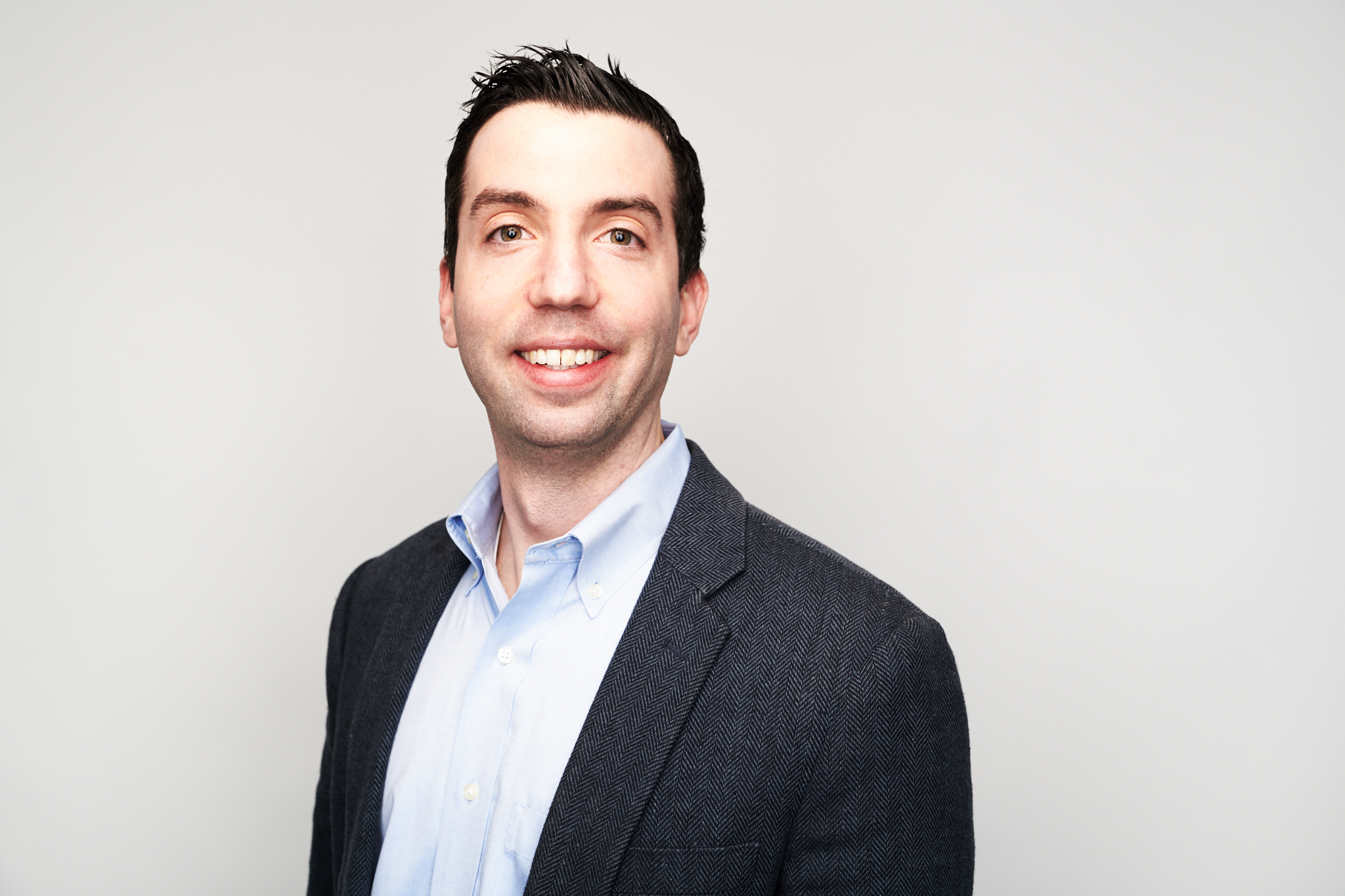 Joshua Mazurek is a Water Program Manager at Meta, with efforts focused on hyperscale data center design, construction, and operations within the context of water/wastewater. His work directly supports Meta’s water stewardship and sustainability initiatives.
Joshua Mazurek is a Water Program Manager at Meta, with efforts focused on hyperscale data center design, construction, and operations within the context of water/wastewater. His work directly supports Meta’s water stewardship and sustainability initiatives.
Mazurek graduated from the University of Maryland, College Park with a B.S. in Civil Engineering (focus in Water Resources) in 2011 and a M.S in Hydraulic Engineering from Imperial College-London (UK) in 2012. While at Imperial College, his research interests focused on emerging disinfection byproducts in drinking water, as well as drinking water treatment strategies.
After returning to the US, Mazurek had the opportunity to work in a variety of roles in the municipal water utility sector. He joined the Washington Suburban Sanitary Commission and developed water main infrastructure replacement designs throughout Montgomery and Prince George’s Counties. In 2015, Mazurek transitioned towards an operations engineer-focused role at DC Water, with work centered on ensuring system reliability for the utility's 43,000+ valve and 9,500+ hydrant assets. Later, he was selected by DC Water’s Executive Leadership to join a small project team focused on upgrading the utility's Customer Information System (CIS). The project was nationally recognized and awarded the title of "Best Customer Information System (CIS) Implementation" during CS Week’s 2019 Expanding Excellence Awards. After completion of the project, Mazurek became a member of DC Water's IT Department, serving as the Enterprise Asset Manager of vertical and linear systems.
In early 2019, Mazurek joined Google as a Technical Program Manager. His work focused on creating hyperscale fiber optic designs for data centers throughout the US, including several first-of-a-kind fiber implementations for Google. He directly led and managed fiber projects valued in excess of $25M, which were instrumental towards delivering critical network capacity.
Mazurek also served part time as a second lieutenant with the 121st Engineer Regiment of the Maryland Defense Force, and is a Professional Engineer (Environmental) in the District of Columbia.
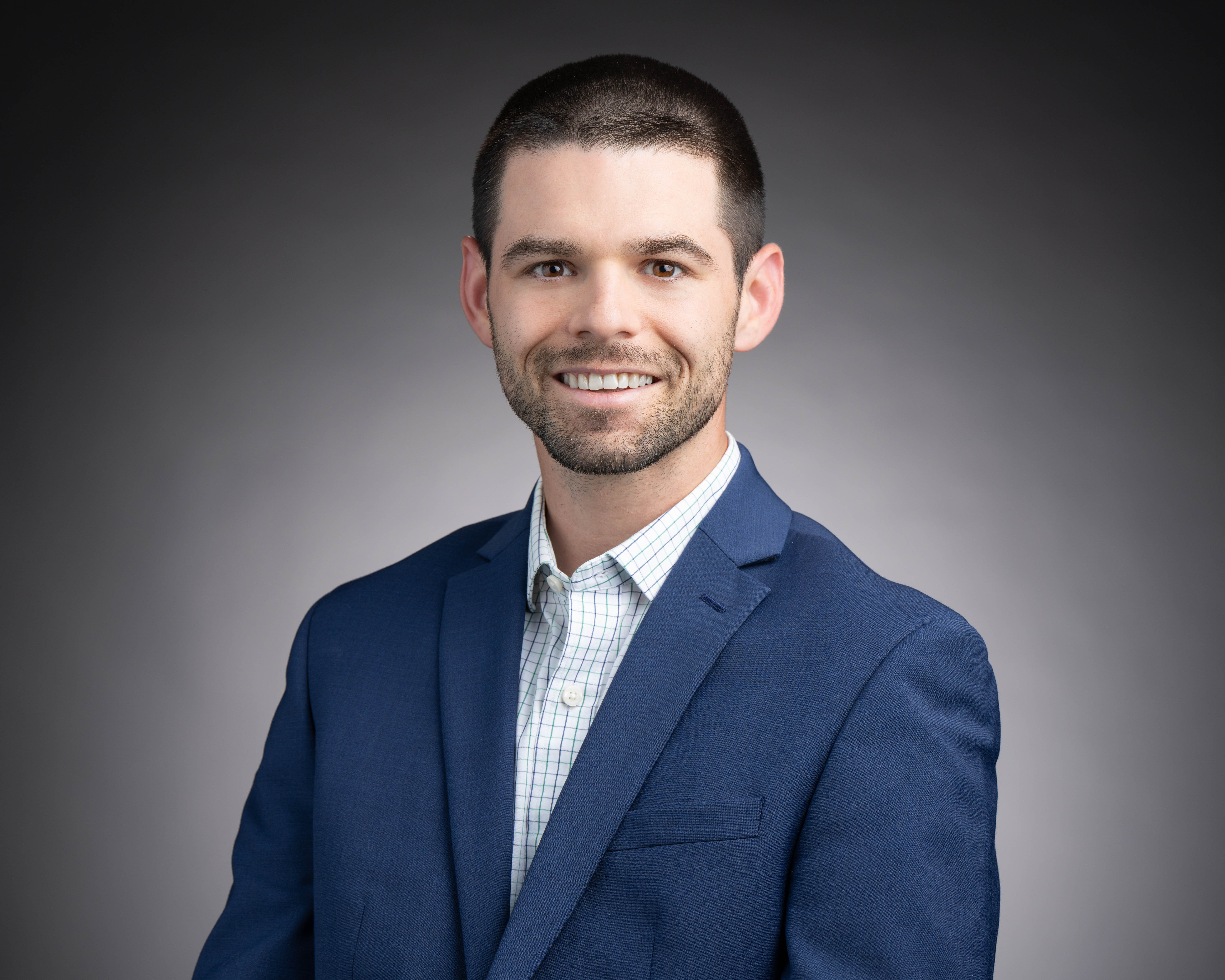 Brendan McNelly is a Senior Engineering Manager at the Johns Hopkins University Applied Physics Lab (JHU/APL). While working at JHU/APL he continues to pursue academic passions in the maritime robotics field and has obtained higher degrees from Penn State (M.S. in Mechanical Engineering, 2015) and Johns Hopkins University (M.S. in Electrical and Computer Engineering, 2019, and Eng.D. in Mechanical Engineering and Robotics, 2023). McNelly has ten academic publications related to robotics and autonomous underwater vehicles that span journals, conferences, and patents, and has received both Outstanding Speaker and Technical Paper Awards. As supervisor of the subsea mechanical engineering section, he has grown the section since its inception and now coaches 14 engineers as they tackle some of the Navy’s most difficult underwater challenges. He manages upwards of $6M per year in technical projects that are focused on the development and testing of novel autonomous and expeditionary robotic systems. McNelly leads many of the lab’s most driven and diverse research and development projects. He brings together experience and personnel from across the organization to tackle difficult engineering challenges. Prior to serving in these roles, McNelly traveled around the United States prototyping uncrewed systems and integrating novel technology capabilities into the Navy’s strategic submarine fleet, long-endurance ocean platforms, and the Marine Corps’ forward-deployed battalions. He has spent over 450 days on the road working hand in hand with our nation’s forces, supporting technological integration efforts, at-sea tests, under-way periods, and even strategic missile launches.
Brendan McNelly is a Senior Engineering Manager at the Johns Hopkins University Applied Physics Lab (JHU/APL). While working at JHU/APL he continues to pursue academic passions in the maritime robotics field and has obtained higher degrees from Penn State (M.S. in Mechanical Engineering, 2015) and Johns Hopkins University (M.S. in Electrical and Computer Engineering, 2019, and Eng.D. in Mechanical Engineering and Robotics, 2023). McNelly has ten academic publications related to robotics and autonomous underwater vehicles that span journals, conferences, and patents, and has received both Outstanding Speaker and Technical Paper Awards. As supervisor of the subsea mechanical engineering section, he has grown the section since its inception and now coaches 14 engineers as they tackle some of the Navy’s most difficult underwater challenges. He manages upwards of $6M per year in technical projects that are focused on the development and testing of novel autonomous and expeditionary robotic systems. McNelly leads many of the lab’s most driven and diverse research and development projects. He brings together experience and personnel from across the organization to tackle difficult engineering challenges. Prior to serving in these roles, McNelly traveled around the United States prototyping uncrewed systems and integrating novel technology capabilities into the Navy’s strategic submarine fleet, long-endurance ocean platforms, and the Marine Corps’ forward-deployed battalions. He has spent over 450 days on the road working hand in hand with our nation’s forces, supporting technological integration efforts, at-sea tests, under-way periods, and even strategic missile launches.
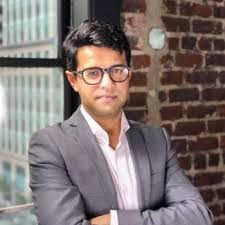 As the Founder and CEO of Taiyō.AI, Saurabh Mishra is leading the evolution in the global construction, infrastructure, and government spending sectors by introducing a novel data and AI platform designed to streamline efficiency and improve outcomes.
As the Founder and CEO of Taiyō.AI, Saurabh Mishra is leading the evolution in the global construction, infrastructure, and government spending sectors by introducing a novel data and AI platform designed to streamline efficiency and improve outcomes.
Mishra’s career has spanned diverse roles that integrate research, teaching, policy with a focus on AI, AI policy, megaprojects, risk management, and decision-making. His research is focused on a systems architecture approach to Artificial Intelligence (AI) and how such systems can help humans make more sustainable investment and policy decisions. Previously, he served as the Director of Stanford University's Institute for Human-Centered Artificial Intelligence (HAI) where Mishra helped launch the Stanford AI Index and built the Global AI Vibrancy Toolkit. He has taught at various executive programs including UC Berkeley and University of San Francisco. Prior to these roles, Mishra was an economist at the World Bank, International Monetary Fund (IMF), and the International Finance Corporation (IFC) in Washington, DC, where he led key projects in emerging markets and research exploring topics of economic growth, technology, inequality, economic development and helped guide policymakers.
Mishra currently serves as a Visiting Fellow at the Bank for International Settlements (BIS), non-resident fellow at the Brookings Institution, and OECD.AI member of AI experts. He received his Ph.D. in Reliability Engineering from the A. James Clark School of Engineering at the University of Maryland, College Park.
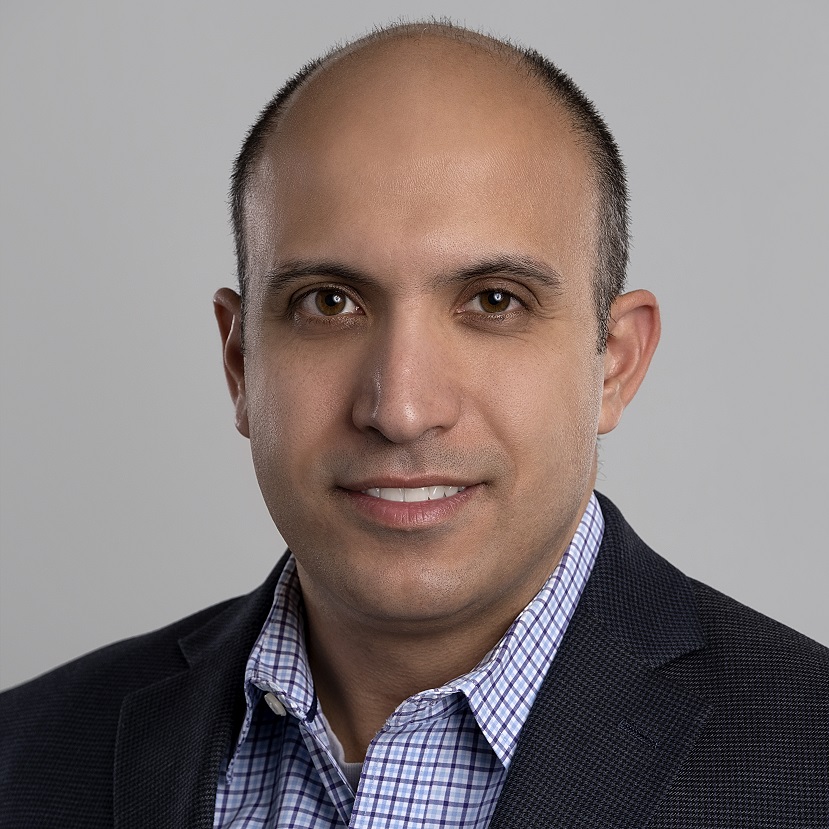 Mostafa Nouh is an Associate Professor in the Department of Mechanical and Aerospace Engineering at the University at Buffalo (UB), the flagship institute of the State University of New York. He also serves as the director of the Sound and Vibrations Laboratory at UB. He obtained his M.S. (2012) and Ph.D. (2013) from the University of Maryland, College Park under the advisement of Professor Amr Baz, Minta Martin Professor of Mechanical Engineering. From 2013-2015, he served as a Postdoctoral Associate at the Smart Materials and Structures Research Center at UMD. In 2015, he joined UB as an Assistant Professor and in 2020, was promoted to Associate Professor with tenure on an accelerated timeline, given his research and scholarly contributions. His research focuses on vibrations and structural dynamics with applications in acoustic metamaterials, thermoacoustic energy generation, and smart materials.
Mostafa Nouh is an Associate Professor in the Department of Mechanical and Aerospace Engineering at the University at Buffalo (UB), the flagship institute of the State University of New York. He also serves as the director of the Sound and Vibrations Laboratory at UB. He obtained his M.S. (2012) and Ph.D. (2013) from the University of Maryland, College Park under the advisement of Professor Amr Baz, Minta Martin Professor of Mechanical Engineering. From 2013-2015, he served as a Postdoctoral Associate at the Smart Materials and Structures Research Center at UMD. In 2015, he joined UB as an Assistant Professor and in 2020, was promoted to Associate Professor with tenure on an accelerated timeline, given his research and scholarly contributions. His research focuses on vibrations and structural dynamics with applications in acoustic metamaterials, thermoacoustic energy generation, and smart materials.
He has published 61 journal papers and 4 book chapters and has given over 60 invited and conference presentations at major domestic and international scientific conferences and technical meetings. His research is supported by the National Science Foundation, the Army Research Office, the Air Force Office of Scientific Research, as well as other federal and state agencies. He currently serves as an Associate Editor of the Journal of Vibration and Acoustics. Throughout his early career, he has received numerous professional accolades including the NSF CAREER Award, the Gary Anderson Early Achievement Award, and the University at Buffalo's Young Investigator Award. He was recently elected Fellow of the American Society of Mechanical Engineers.
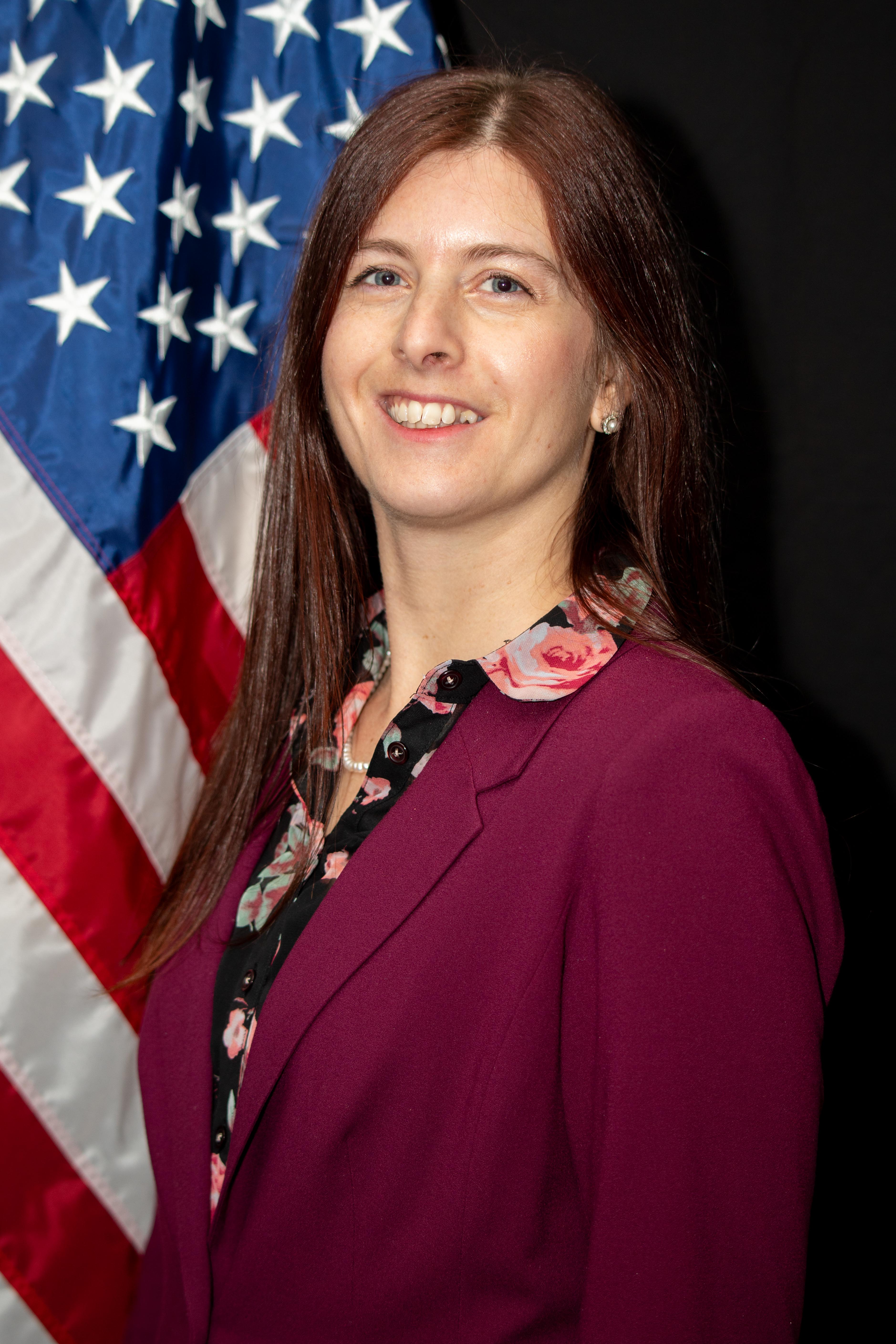 Dr. Ashley Ruth acts as the Army's Soldier portable battery Subject Matter Expert. Her expertise is evidenced publicly and within the government through dozens of publications, reports, and presentations as well as from her 5 awarded and pending patents. She is responsible for monitoring and testing industry advancements in battery technology and determining suitability for application within the defense department. She also works with her peers in other defense services, other government agencies, and industry to promote advanced batteries and ensure a resilient supply of batteries in the United States. As a leader in her organization, she advises senior leaders when battery topics or concerns arise, and decisions require expert input. Ruth has a passion for ensuring the Warfighter has access to the best capabilities available to optimize lethality and survivability. This passion drives her to affect change with persistence and candor if necessary.
Dr. Ashley Ruth acts as the Army's Soldier portable battery Subject Matter Expert. Her expertise is evidenced publicly and within the government through dozens of publications, reports, and presentations as well as from her 5 awarded and pending patents. She is responsible for monitoring and testing industry advancements in battery technology and determining suitability for application within the defense department. She also works with her peers in other defense services, other government agencies, and industry to promote advanced batteries and ensure a resilient supply of batteries in the United States. As a leader in her organization, she advises senior leaders when battery topics or concerns arise, and decisions require expert input. Ruth has a passion for ensuring the Warfighter has access to the best capabilities available to optimize lethality and survivability. This passion drives her to affect change with persistence and candor if necessary.
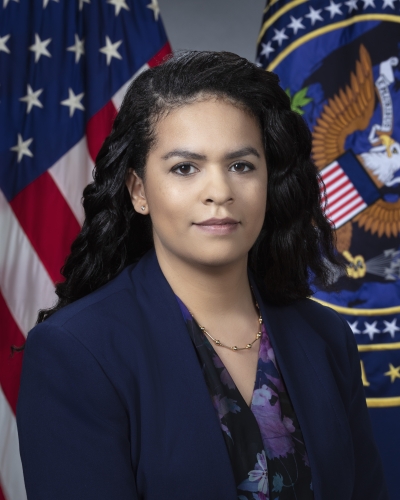 Dr. Alexis Truitt joined IARPA in January of 2022. In her current assignment as a Program Manager, Truitt focuses on areas of scientific research that includes astrodynamics, plasma physics, imaging science, and space situational awareness. She is presently leading IARPA's efforts on the SINTRA program that aims to detect, track, and characterize orbital space debris that is currently difficult to track.
Dr. Alexis Truitt joined IARPA in January of 2022. In her current assignment as a Program Manager, Truitt focuses on areas of scientific research that includes astrodynamics, plasma physics, imaging science, and space situational awareness. She is presently leading IARPA's efforts on the SINTRA program that aims to detect, track, and characterize orbital space debris that is currently difficult to track.
Prior to joining IARPA, Truitt worked at the National Geospatial Intelligence Agency from 2012 to 2022 where she served as the deputy lead and senior staff scientist for the Space Pod in the Research Directorate, and a thermal imagery scientist in the Analysis Directorate. Truitt also worked at NASA’s Space Telescope Science Institute from 2007 to 2012, where she supported the Hubble Space Telescope and the Kepler Space Telescope missions.
Truitt graduated from the University of Maryland, College Park with a Ph.D. in Aerospace Engineering. She earned a M.S. from Johns Hopkins University in Electrical Engineering, and two B.S. in Physics and Astronomy from University of Maryland, College Park.
Truitt is the recipient of the 2019 Presidential Early Career Award for Scientists and Engineers (PECASE) award and the 2017 Director of National Intelligence (DNI) Science & Technology Fellowship. She resides in the Washington D.C. area with her husband and two daughters.
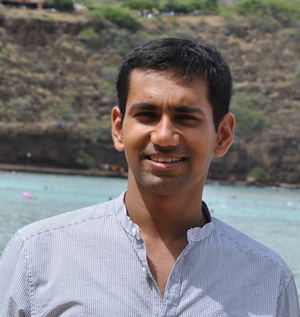 Himanshu Tyagi is an Associate Professor at the Department of Electrical Communication Engineering, Indian Institute of Science, Bangalore. He is also a co-founder and CTO for the Kaleidoscope Blockchain, a blockchain startup building decentralized physical infrastructure, and founder and CEO for Banyan Intelligence, an AI service company pioneering in bringing automation to observability for Telcos.
Himanshu Tyagi is an Associate Professor at the Department of Electrical Communication Engineering, Indian Institute of Science, Bangalore. He is also a co-founder and CTO for the Kaleidoscope Blockchain, a blockchain startup building decentralized physical infrastructure, and founder and CEO for Banyan Intelligence, an AI service company pioneering in bringing automation to observability for Telcos.
Tyagi is a recipient of the Indian National Science Academy (INSA) Young Scientist Medal for the year 2020. His students have authored papers that won the Best Student Paper Awards at IEEE International Symposium on Information Theory, the top conference in Information Theory, in 2018 and 2021, making his research group only one of the few winning this prestigious award multiple times.
When at UMD, Tyagi was awarded the Distinguished Dissertation Fellowship 2012 for the Department of Electrical and Computer Engineering and was one of the Future Faculty Program Fellows of the Clark School of Engineering in 2010.
Tyagi has conducted research in Information Theory, Cryptography, AI and 5G. He has served as an Associate Editor for the IEEE Transactions on Information Theory and an Area Editor for Foundations and Trends in Communication and Information Theory. He co-authored a book on Information Theoretic Cryptography with Cambridge University Press. He was one of the co-PI for India's 5G Testbed project. He was also the scientific advisor for the Bangalore city COVID war-room and led the development of the software that was used for tracking COVID cases and deciding testing strategy for 6 million residents of Bangalore Urban Area.
 Jillian Alfred currently is the Head of Flight Controls, Actuation, and Utility Systems department at Supernal, an affiliate of Hyundai Motor Group working to develop a new urban air mobility electric vertical take-off and lift vehicle. In this role, she oversees over 30 people executing the technical design, supplier management, and aircraft build of the fly-by-wire aircraft. Prior to this role, Alfred was the Head of the Flight Controls team developing the fly-by-wire architecture and control laws. She joined Supernal as an initial engineering founding member.
Jillian Alfred currently is the Head of Flight Controls, Actuation, and Utility Systems department at Supernal, an affiliate of Hyundai Motor Group working to develop a new urban air mobility electric vertical take-off and lift vehicle. In this role, she oversees over 30 people executing the technical design, supplier management, and aircraft build of the fly-by-wire aircraft. Prior to this role, Alfred was the Head of the Flight Controls team developing the fly-by-wire architecture and control laws. She joined Supernal as an initial engineering founding member.  Dean Samuel Graham, Jr. is pleased to announce the Early Career Distinguished Alumni Society Class of 2024. The Clark School is proud to recognize the innovations, leadership, and impact made by the Clark School’s inaugural class of Early Career Distinguished Alumni Society inductees. These 25 alumni are at the forefront of their respective fields and have demonstrated excellence in leadership, innovation, entrepreneurship and/or service.
Dean Samuel Graham, Jr. is pleased to announce the Early Career Distinguished Alumni Society Class of 2024. The Clark School is proud to recognize the innovations, leadership, and impact made by the Clark School’s inaugural class of Early Career Distinguished Alumni Society inductees. These 25 alumni are at the forefront of their respective fields and have demonstrated excellence in leadership, innovation, entrepreneurship and/or service.  Dr. Kristen Cetin is an Associate Professor in the Department of Civil and Environmental Engineering (CEE) at Michigan State University. She is also the Director of the MSU Industrial Assessment Center. She leads a diverse research group dedicated to advancing smart infrastructures system research and education. Her research group's work focuses on the investigation of the performance of buildings, building systems, and other infrastructure and the development of solutions to improve the energy performance, efficiency, and energy demand contributions of the built environment. This includes projects that combine the fields of building science and building technology with the use of smart grid connected technologies, with the goal of building, operating and maintaining buildings infrastructure, and overall communities that are smarter, more energy efficient and environmentally friendly, and that reduce the peak demands on the electric grid.
Dr. Kristen Cetin is an Associate Professor in the Department of Civil and Environmental Engineering (CEE) at Michigan State University. She is also the Director of the MSU Industrial Assessment Center. She leads a diverse research group dedicated to advancing smart infrastructures system research and education. Her research group's work focuses on the investigation of the performance of buildings, building systems, and other infrastructure and the development of solutions to improve the energy performance, efficiency, and energy demand contributions of the built environment. This includes projects that combine the fields of building science and building technology with the use of smart grid connected technologies, with the goal of building, operating and maintaining buildings infrastructure, and overall communities that are smarter, more energy efficient and environmentally friendly, and that reduce the peak demands on the electric grid. Christine Chatfield is a registered fire protection engineer in the state of Maryland and has also obtained her PMP certification. Chatfield is the Vice President and Global Market Leader for Hospitality at Jensen Hughes, a fire protection and specialty consulting engineering firm. Chatfield has served in various roles within Jensen Hughes since receiving her B.S. in Fire Protection Engineering in 2008 and quickly began her leadership roles within Jensen Hughes by becoming a Senior Engineer managing a group of engineers in 2013 to rising to a Director in the Mid Atlantic shortly thereafter in 2017. In 2023 she was promoted to Global Market Leader for Hospitality and became one of the youngest females in the company to serve as a Global Market Leader. She is accountable for the revenue and margin on hospitality projects on a global scale for the company and works closely with operations SVPs, COO, and business development to grow the market. Since starting in the role in 2023 Jensen Hughes saw a 15% increase in growth in the Hospitality market and her contributions leading up helped Jensen Hughes receive top rankings in the Building Design + Construction hospitality engineering firms in 2022 and 2023.
Christine Chatfield is a registered fire protection engineer in the state of Maryland and has also obtained her PMP certification. Chatfield is the Vice President and Global Market Leader for Hospitality at Jensen Hughes, a fire protection and specialty consulting engineering firm. Chatfield has served in various roles within Jensen Hughes since receiving her B.S. in Fire Protection Engineering in 2008 and quickly began her leadership roles within Jensen Hughes by becoming a Senior Engineer managing a group of engineers in 2013 to rising to a Director in the Mid Atlantic shortly thereafter in 2017. In 2023 she was promoted to Global Market Leader for Hospitality and became one of the youngest females in the company to serve as a Global Market Leader. She is accountable for the revenue and margin on hospitality projects on a global scale for the company and works closely with operations SVPs, COO, and business development to grow the market. Since starting in the role in 2023 Jensen Hughes saw a 15% increase in growth in the Hospitality market and her contributions leading up helped Jensen Hughes receive top rankings in the Building Design + Construction hospitality engineering firms in 2022 and 2023. Nicholas Ciccarelli, PE is a co-founder of Neuma LLC which was acquired by Kymanox Corporation in July 2021. Kymanox is a global professional services organization that supports comprehensive drug and medical device development with integrated science, engineering, compliance, and technical project management. Kymanox is backed by WestView Capital Partners, a Boston-based growth equity firm. Since the acquisition, Ciccarelli has steadily progressed within the parent organization to become Chief Technology Officer and serves on the executive leadership team. His success in the integration of the legacy design team from Neuma has enabled Kymanox to pursue new opportunities in M&A and to expand into new service areas including medical device testing and low-volume manufacturing. Ciccarelli is now leading Kymanox’s efforts in integrating a European medical device development company with legacy design, development, and commercialization teams. He is particularly focused on optimizing the collaboration between cross-functional teams to accelerate speed to market for new medical technologies.
Nicholas Ciccarelli, PE is a co-founder of Neuma LLC which was acquired by Kymanox Corporation in July 2021. Kymanox is a global professional services organization that supports comprehensive drug and medical device development with integrated science, engineering, compliance, and technical project management. Kymanox is backed by WestView Capital Partners, a Boston-based growth equity firm. Since the acquisition, Ciccarelli has steadily progressed within the parent organization to become Chief Technology Officer and serves on the executive leadership team. His success in the integration of the legacy design team from Neuma has enabled Kymanox to pursue new opportunities in M&A and to expand into new service areas including medical device testing and low-volume manufacturing. Ciccarelli is now leading Kymanox’s efforts in integrating a European medical device development company with legacy design, development, and commercialization teams. He is particularly focused on optimizing the collaboration between cross-functional teams to accelerate speed to market for new medical technologies. Angelo Collins is the Executive Director of the Vertical Flight Society, leading the world’s only international non-profit organization dedicated to the advancement of vertical takeoff and landing (VTOL) aircraft and technology. A majority of his career was dedicated to supporting R&D efforts at DARPA, where he served as a Subject Matter Expert (SME) on various aerospace programs. Collins also served as the Science and Technology (S&T) Portfolio Manager and S&T Affordability Lead in the F-35 Joint Program Office, primarily responsible for oversight of S&T projects, including the F135-PW-600 engine and Rolls-Royce LiftSystem for the short takeoff and vertical landing (STOVL) jet fighter. In support of the Office of Naval Research, Collins helped make sea-based aviation a National Navy Responsibility and also served as the Flight Test Lead and overall engineering lead of the Autonomous Aerial Cargo Utility System (AACUS) Program. Collins also served as a program manager for Skyworks Aeronautics on a part-time basis, leading a team of international engineers, analysts, and lawyers in the development of the Hawk 5 Gyroplane. Collins has a B.S. in Aerospace Engineering from the University of Maryland, College Park and an M.S. in Engineering Administration from Virginia Tech. He is the author/co-author of six technical papers and several articles in Vertiflite Magazine. He was a student of and co-author with then-UMD Prof. Gordon Leishman, winning a best paper award in 2011. He is a native of the Boston, Massachusetts area, but has lived and worked in Arlington, Virginia since 2009. He’s married and has 3 children.
Angelo Collins is the Executive Director of the Vertical Flight Society, leading the world’s only international non-profit organization dedicated to the advancement of vertical takeoff and landing (VTOL) aircraft and technology. A majority of his career was dedicated to supporting R&D efforts at DARPA, where he served as a Subject Matter Expert (SME) on various aerospace programs. Collins also served as the Science and Technology (S&T) Portfolio Manager and S&T Affordability Lead in the F-35 Joint Program Office, primarily responsible for oversight of S&T projects, including the F135-PW-600 engine and Rolls-Royce LiftSystem for the short takeoff and vertical landing (STOVL) jet fighter. In support of the Office of Naval Research, Collins helped make sea-based aviation a National Navy Responsibility and also served as the Flight Test Lead and overall engineering lead of the Autonomous Aerial Cargo Utility System (AACUS) Program. Collins also served as a program manager for Skyworks Aeronautics on a part-time basis, leading a team of international engineers, analysts, and lawyers in the development of the Hawk 5 Gyroplane. Collins has a B.S. in Aerospace Engineering from the University of Maryland, College Park and an M.S. in Engineering Administration from Virginia Tech. He is the author/co-author of six technical papers and several articles in Vertiflite Magazine. He was a student of and co-author with then-UMD Prof. Gordon Leishman, winning a best paper award in 2011. He is a native of the Boston, Massachusetts area, but has lived and worked in Arlington, Virginia since 2009. He’s married and has 3 children. Dr. Pete DeMuth is a Founding Scientist at Elicio Therapeutics Inc. (NASDAQ: ELTX) and currently serves as Chief Scientific Officer, leading the development of technology platforms for cancer immuno-therapeutics and infectious disease vaccines from early research to clinical development. Since the founding of the company, over his more than ten year tenure at Elicio, DeMuth has led the development of the company’s AMP technology platform. These efforts have led to the invention and development of multiple product candidates, including ELI-002, an investigational cancer immunotherapy currently in Phase 2 clinical trials.
Dr. Pete DeMuth is a Founding Scientist at Elicio Therapeutics Inc. (NASDAQ: ELTX) and currently serves as Chief Scientific Officer, leading the development of technology platforms for cancer immuno-therapeutics and infectious disease vaccines from early research to clinical development. Since the founding of the company, over his more than ten year tenure at Elicio, DeMuth has led the development of the company’s AMP technology platform. These efforts have led to the invention and development of multiple product candidates, including ELI-002, an investigational cancer immunotherapy currently in Phase 2 clinical trials. James Doggett has held engineering, analysis, and leadership roles across multiple government and private sector organizations. Currently, he serves as an Operations Research Analyst in the Space and Intelligence Division of the Department of Defense's Cost Assessment and Program Evaluation (CAPE) organization. Originally chartered in the 1960s as the Office of Systems Analysis, CAPE exists to provide civilian oversight of the formation and execution of the Department of Defense's nearly trillion-dollar yearly budget. In this role, Doggett applies Operations Research (OR) and qualitative analysis tools to large and messy datasets in order to provide strategic decision support to Department of Defense senior leaders.
James Doggett has held engineering, analysis, and leadership roles across multiple government and private sector organizations. Currently, he serves as an Operations Research Analyst in the Space and Intelligence Division of the Department of Defense's Cost Assessment and Program Evaluation (CAPE) organization. Originally chartered in the 1960s as the Office of Systems Analysis, CAPE exists to provide civilian oversight of the formation and execution of the Department of Defense's nearly trillion-dollar yearly budget. In this role, Doggett applies Operations Research (OR) and qualitative analysis tools to large and messy datasets in order to provide strategic decision support to Department of Defense senior leaders. Lucia Fernandez is a leading scientist and central figure in the rising second generation of Cell and Gene Therapy pioneers. As Head of Process Development and Manufacturing at VintaBio, Fernandez and her team are creating novel technologies and solutions aimed at simplifying gene therapy development and production. Driven to make one-dose gene therapies accessible to all, Fernandez’s innovations have increased yield and efficiency, while greatly reduced the cost of development and manufacture, and alleviated regulatory burden for gene therapy developers.
Lucia Fernandez is a leading scientist and central figure in the rising second generation of Cell and Gene Therapy pioneers. As Head of Process Development and Manufacturing at VintaBio, Fernandez and her team are creating novel technologies and solutions aimed at simplifying gene therapy development and production. Driven to make one-dose gene therapies accessible to all, Fernandez’s innovations have increased yield and efficiency, while greatly reduced the cost of development and manufacture, and alleviated regulatory burden for gene therapy developers. After receiving his Ph.D. degree from the University of Maryland, College Park in 2013, Domenic Forte joined the University of Connecticut as an Assistant Professor. He is currently with the Electrical and Computer Engineering (ECE) Department at the University of Florida (UF) where he holds the titles of Professor and Steven A Yatauro Faculty Fellow. In 2022, he was named the Associate Director of UF’s Florida Institute for National Security (FINS).
After receiving his Ph.D. degree from the University of Maryland, College Park in 2013, Domenic Forte joined the University of Connecticut as an Assistant Professor. He is currently with the Electrical and Computer Engineering (ECE) Department at the University of Florida (UF) where he holds the titles of Professor and Steven A Yatauro Faculty Fellow. In 2022, he was named the Associate Director of UF’s Florida Institute for National Security (FINS). Dr. Brendan Hanrahan is a senior materials engineer, renowned for his expertise in ferroelectrics and energy applications. He earned his B.S. from Clemson University in 2006. At the University of Maryland, College Park he obtained an M.S. (’09) and a Ph.D. in 2013 in Materials Science and Engineering, focusing his doctoral research on advancing microscale power generation technologies.
Dr. Brendan Hanrahan is a senior materials engineer, renowned for his expertise in ferroelectrics and energy applications. He earned his B.S. from Clemson University in 2006. At the University of Maryland, College Park he obtained an M.S. (’09) and a Ph.D. in 2013 in Materials Science and Engineering, focusing his doctoral research on advancing microscale power generation technologies. Rubbel Kumar is the Air-Vehicle Design and Technologies Program Manager at the Johns Hopkins Applied Physics Laboratory (APL), the US’s largest University Affiliated Research Center.
Rubbel Kumar is the Air-Vehicle Design and Technologies Program Manager at the Johns Hopkins Applied Physics Laboratory (APL), the US’s largest University Affiliated Research Center. Hilary Lane joined the Nuclear Energy Institute (NEI) in 2017 and has nearly 15 years of experience working in commercial and defense nuclear, holding positions of increasing responsibility. She is currently the Director of Fuel and Radiation Safety, where her team works on a diverse array of regulatory, technical, and policy matters on behalf of the commercial nuclear industry. Since 2020, she has been a member of the Executive Committee to the National Organization of Test, Research, and Training Reactors (TRTR), representing her alma mater, the University of Maryland, and several other university research reactors across the United States.
Hilary Lane joined the Nuclear Energy Institute (NEI) in 2017 and has nearly 15 years of experience working in commercial and defense nuclear, holding positions of increasing responsibility. She is currently the Director of Fuel and Radiation Safety, where her team works on a diverse array of regulatory, technical, and policy matters on behalf of the commercial nuclear industry. Since 2020, she has been a member of the Executive Committee to the National Organization of Test, Research, and Training Reactors (TRTR), representing her alma mater, the University of Maryland, and several other university research reactors across the United States. James Lankford currently serves as a staff-level aerodynamicist for the Flight Physics Division of Aurora Flight Sciences. During his tenure with Aurora Flight Sciences, Lankford has had the opportunity to work on a number of projects related to fixed-wing and rotary-wing aircraft. His work duties on those projects included conducting high-fidelity computational fluid dynamics (CFD) analysis to determine vehicle-level aerodynamic performance. Lankford also performed mid-fidelity analysis of vehicle rotor system aeromechanics to assess aerodynamic and structural load impacts. His current work is focused on the design and analysis for select DARPA X-Plane projects.
James Lankford currently serves as a staff-level aerodynamicist for the Flight Physics Division of Aurora Flight Sciences. During his tenure with Aurora Flight Sciences, Lankford has had the opportunity to work on a number of projects related to fixed-wing and rotary-wing aircraft. His work duties on those projects included conducting high-fidelity computational fluid dynamics (CFD) analysis to determine vehicle-level aerodynamic performance. Lankford also performed mid-fidelity analysis of vehicle rotor system aeromechanics to assess aerodynamic and structural load impacts. His current work is focused on the design and analysis for select DARPA X-Plane projects. Dr. Isaac Leventon is an alumnus of the University of Maryland, College Park where he completed his B.S., M.S., and Ph.D. with the Department of Fire Protection Engineering. In 2018, he reimagined and has since led, the Engineered Fire Safe Products Project at the National Institute of Standards and Technology (NIST). In this role, Leventon has significantly enhanced NIST Fire Research capabilities by establishing a material flammability database that maintains and advances the tools needed for quantitative prediction of material flammability (e.g., ignition, steady burning, and fire growth). Leventon has been instrumental in developing state-of-the-art experimental measurements and automated analysis tools for material property determination (i.e., for fire model calibration); accurate, realistic, and efficient material property sets; and comprehensive datasets for advanced fire model validation.
Dr. Isaac Leventon is an alumnus of the University of Maryland, College Park where he completed his B.S., M.S., and Ph.D. with the Department of Fire Protection Engineering. In 2018, he reimagined and has since led, the Engineered Fire Safe Products Project at the National Institute of Standards and Technology (NIST). In this role, Leventon has significantly enhanced NIST Fire Research capabilities by establishing a material flammability database that maintains and advances the tools needed for quantitative prediction of material flammability (e.g., ignition, steady burning, and fire growth). Leventon has been instrumental in developing state-of-the-art experimental measurements and automated analysis tools for material property determination (i.e., for fire model calibration); accurate, realistic, and efficient material property sets; and comprehensive datasets for advanced fire model validation. Adam Levine is the President of Capitol Fire Sprinkler, a fire sprinkler installation and service company in New York City that was founded in 1952.
Adam Levine is the President of Capitol Fire Sprinkler, a fire sprinkler installation and service company in New York City that was founded in 1952. Currently, Rachel Lilienfeld is the Lead Fire Protection Engineer for Amazon Web Services (AWS). She is responsible for designing strategic safety systems and influences organizational growth for the entire AWS data center operations. As a fire protection engineer, she protects the environment, property, and most importantly, people, from the dangers of fire and explosions. Additionally, Lilienfeld was selected to be on a global technical committee for the National Fire Protection Association (NFPA).
Currently, Rachel Lilienfeld is the Lead Fire Protection Engineer for Amazon Web Services (AWS). She is responsible for designing strategic safety systems and influences organizational growth for the entire AWS data center operations. As a fire protection engineer, she protects the environment, property, and most importantly, people, from the dangers of fire and explosions. Additionally, Lilienfeld was selected to be on a global technical committee for the National Fire Protection Association (NFPA). Upal Mahbub, Ph.D., Senior Member IEEE, is a Staff Engineer at the Multimedia R&D Lab at Qualcomm, San Diego, CA. He received his Ph.D. (2018) and an M.S. (2017) in Electrical Engineering from the University of Maryland, College Park, and another M.S. (2011) in Electrical and Electronic Engineering from BUET, Dhaka, Bangladesh. His doctoral research was on multi-modal active user authentication for smartphones using computer vision and machine learning techniques. Previously, Mahbub was an Assistant Professor at the Dept. of Electrical and Electronic Engineering, BUET, Dhaka, Bangladesh. He received the best paper awards at IEEE UEMCON 2016 and ICCIT 2011, best poster award at BTAS 2016, and a distinguished graduate fellowship from the A. James Clark School of Engineering at UMD.
Upal Mahbub, Ph.D., Senior Member IEEE, is a Staff Engineer at the Multimedia R&D Lab at Qualcomm, San Diego, CA. He received his Ph.D. (2018) and an M.S. (2017) in Electrical Engineering from the University of Maryland, College Park, and another M.S. (2011) in Electrical and Electronic Engineering from BUET, Dhaka, Bangladesh. His doctoral research was on multi-modal active user authentication for smartphones using computer vision and machine learning techniques. Previously, Mahbub was an Assistant Professor at the Dept. of Electrical and Electronic Engineering, BUET, Dhaka, Bangladesh. He received the best paper awards at IEEE UEMCON 2016 and ICCIT 2011, best poster award at BTAS 2016, and a distinguished graduate fellowship from the A. James Clark School of Engineering at UMD. Caitlin Marsh is the Vice President of Product for SpiderOak, the leader in zero-trust cybersecurity solutions for next-generation space systems, where she oversees SpiderOak's product strategy, aligning customer mission requirements, product development, and market strategy.
Caitlin Marsh is the Vice President of Product for SpiderOak, the leader in zero-trust cybersecurity solutions for next-generation space systems, where she oversees SpiderOak's product strategy, aligning customer mission requirements, product development, and market strategy. Joshua Mazurek is a Water Program Manager at Meta, with efforts focused on hyperscale data center design, construction, and operations within the context of water/wastewater. His work directly supports Meta’s water stewardship and sustainability initiatives.
Joshua Mazurek is a Water Program Manager at Meta, with efforts focused on hyperscale data center design, construction, and operations within the context of water/wastewater. His work directly supports Meta’s water stewardship and sustainability initiatives.  Brendan McNelly is a Senior Engineering Manager at the Johns Hopkins University Applied Physics Lab (JHU/APL). While working at JHU/APL he continues to pursue academic passions in the maritime robotics field and has obtained higher degrees from Penn State (M.S. in Mechanical Engineering, 2015) and Johns Hopkins University (M.S. in Electrical and Computer Engineering, 2019, and Eng.D. in Mechanical Engineering and Robotics, 2023). McNelly has ten academic publications related to robotics and autonomous underwater vehicles that span journals, conferences, and patents, and has received both Outstanding Speaker and Technical Paper Awards. As supervisor of the subsea mechanical engineering section, he has grown the section since its inception and now coaches 14 engineers as they tackle some of the Navy’s most difficult underwater challenges. He manages upwards of $6M per year in technical projects that are focused on the development and testing of novel autonomous and expeditionary robotic systems. McNelly leads many of the lab’s most driven and diverse research and development projects. He brings together experience and personnel from across the organization to tackle difficult engineering challenges. Prior to serving in these roles, McNelly traveled around the United States prototyping uncrewed systems and integrating novel technology capabilities into the Navy’s strategic submarine fleet, long-endurance ocean platforms, and the Marine Corps’ forward-deployed battalions. He has spent over 450 days on the road working hand in hand with our nation’s forces, supporting technological integration efforts, at-sea tests, under-way periods, and even strategic missile launches.
Brendan McNelly is a Senior Engineering Manager at the Johns Hopkins University Applied Physics Lab (JHU/APL). While working at JHU/APL he continues to pursue academic passions in the maritime robotics field and has obtained higher degrees from Penn State (M.S. in Mechanical Engineering, 2015) and Johns Hopkins University (M.S. in Electrical and Computer Engineering, 2019, and Eng.D. in Mechanical Engineering and Robotics, 2023). McNelly has ten academic publications related to robotics and autonomous underwater vehicles that span journals, conferences, and patents, and has received both Outstanding Speaker and Technical Paper Awards. As supervisor of the subsea mechanical engineering section, he has grown the section since its inception and now coaches 14 engineers as they tackle some of the Navy’s most difficult underwater challenges. He manages upwards of $6M per year in technical projects that are focused on the development and testing of novel autonomous and expeditionary robotic systems. McNelly leads many of the lab’s most driven and diverse research and development projects. He brings together experience and personnel from across the organization to tackle difficult engineering challenges. Prior to serving in these roles, McNelly traveled around the United States prototyping uncrewed systems and integrating novel technology capabilities into the Navy’s strategic submarine fleet, long-endurance ocean platforms, and the Marine Corps’ forward-deployed battalions. He has spent over 450 days on the road working hand in hand with our nation’s forces, supporting technological integration efforts, at-sea tests, under-way periods, and even strategic missile launches. As the Founder and CEO of Taiyō.AI, Saurabh Mishra is leading the evolution in the global construction, infrastructure, and government spending sectors by introducing a novel data and AI platform designed to streamline efficiency and improve outcomes.
As the Founder and CEO of Taiyō.AI, Saurabh Mishra is leading the evolution in the global construction, infrastructure, and government spending sectors by introducing a novel data and AI platform designed to streamline efficiency and improve outcomes. Mostafa Nouh is an Associate Professor in the Department of Mechanical and Aerospace Engineering at the University at Buffalo (UB), the flagship institute of the State University of New York. He also serves as the director of the Sound and Vibrations Laboratory at UB. He obtained his M.S. (2012) and Ph.D. (2013) from the University of Maryland, College Park under the advisement of Professor Amr Baz, Minta Martin Professor of Mechanical Engineering. From 2013-2015, he served as a Postdoctoral Associate at the Smart Materials and Structures Research Center at UMD. In 2015, he joined UB as an Assistant Professor and in 2020, was promoted to Associate Professor with tenure on an accelerated timeline, given his research and scholarly contributions. His research focuses on vibrations and structural dynamics with applications in acoustic metamaterials, thermoacoustic energy generation, and smart materials.
Mostafa Nouh is an Associate Professor in the Department of Mechanical and Aerospace Engineering at the University at Buffalo (UB), the flagship institute of the State University of New York. He also serves as the director of the Sound and Vibrations Laboratory at UB. He obtained his M.S. (2012) and Ph.D. (2013) from the University of Maryland, College Park under the advisement of Professor Amr Baz, Minta Martin Professor of Mechanical Engineering. From 2013-2015, he served as a Postdoctoral Associate at the Smart Materials and Structures Research Center at UMD. In 2015, he joined UB as an Assistant Professor and in 2020, was promoted to Associate Professor with tenure on an accelerated timeline, given his research and scholarly contributions. His research focuses on vibrations and structural dynamics with applications in acoustic metamaterials, thermoacoustic energy generation, and smart materials.  Dr. Ashley Ruth acts as the Army's Soldier portable battery Subject Matter Expert. Her expertise is evidenced publicly and within the government through dozens of publications, reports, and presentations as well as from her 5 awarded and pending patents. She is responsible for monitoring and testing industry advancements in battery technology and determining suitability for application within the defense department. She also works with her peers in other defense services, other government agencies, and industry to promote advanced batteries and ensure a resilient supply of batteries in the United States. As a leader in her organization, she advises senior leaders when battery topics or concerns arise, and decisions require expert input. Ruth has a passion for ensuring the Warfighter has access to the best capabilities available to optimize lethality and survivability. This passion drives her to affect change with persistence and candor if necessary.
Dr. Ashley Ruth acts as the Army's Soldier portable battery Subject Matter Expert. Her expertise is evidenced publicly and within the government through dozens of publications, reports, and presentations as well as from her 5 awarded and pending patents. She is responsible for monitoring and testing industry advancements in battery technology and determining suitability for application within the defense department. She also works with her peers in other defense services, other government agencies, and industry to promote advanced batteries and ensure a resilient supply of batteries in the United States. As a leader in her organization, she advises senior leaders when battery topics or concerns arise, and decisions require expert input. Ruth has a passion for ensuring the Warfighter has access to the best capabilities available to optimize lethality and survivability. This passion drives her to affect change with persistence and candor if necessary. Dr. Alexis Truitt joined IARPA in January of 2022. In her current assignment as a Program Manager, Truitt focuses on areas of scientific research that includes astrodynamics, plasma physics, imaging science, and space situational awareness. She is presently leading IARPA's efforts on the SINTRA program that aims to detect, track, and characterize orbital space debris that is currently difficult to track.
Dr. Alexis Truitt joined IARPA in January of 2022. In her current assignment as a Program Manager, Truitt focuses on areas of scientific research that includes astrodynamics, plasma physics, imaging science, and space situational awareness. She is presently leading IARPA's efforts on the SINTRA program that aims to detect, track, and characterize orbital space debris that is currently difficult to track.  Himanshu Tyagi is an Associate Professor at the Department of Electrical Communication Engineering, Indian Institute of Science, Bangalore. He is also a co-founder and CTO for the Kaleidoscope Blockchain, a blockchain startup building decentralized physical infrastructure, and founder and CEO for Banyan Intelligence, an AI service company pioneering in bringing automation to observability for Telcos.
Himanshu Tyagi is an Associate Professor at the Department of Electrical Communication Engineering, Indian Institute of Science, Bangalore. He is also a co-founder and CTO for the Kaleidoscope Blockchain, a blockchain startup building decentralized physical infrastructure, and founder and CEO for Banyan Intelligence, an AI service company pioneering in bringing automation to observability for Telcos.